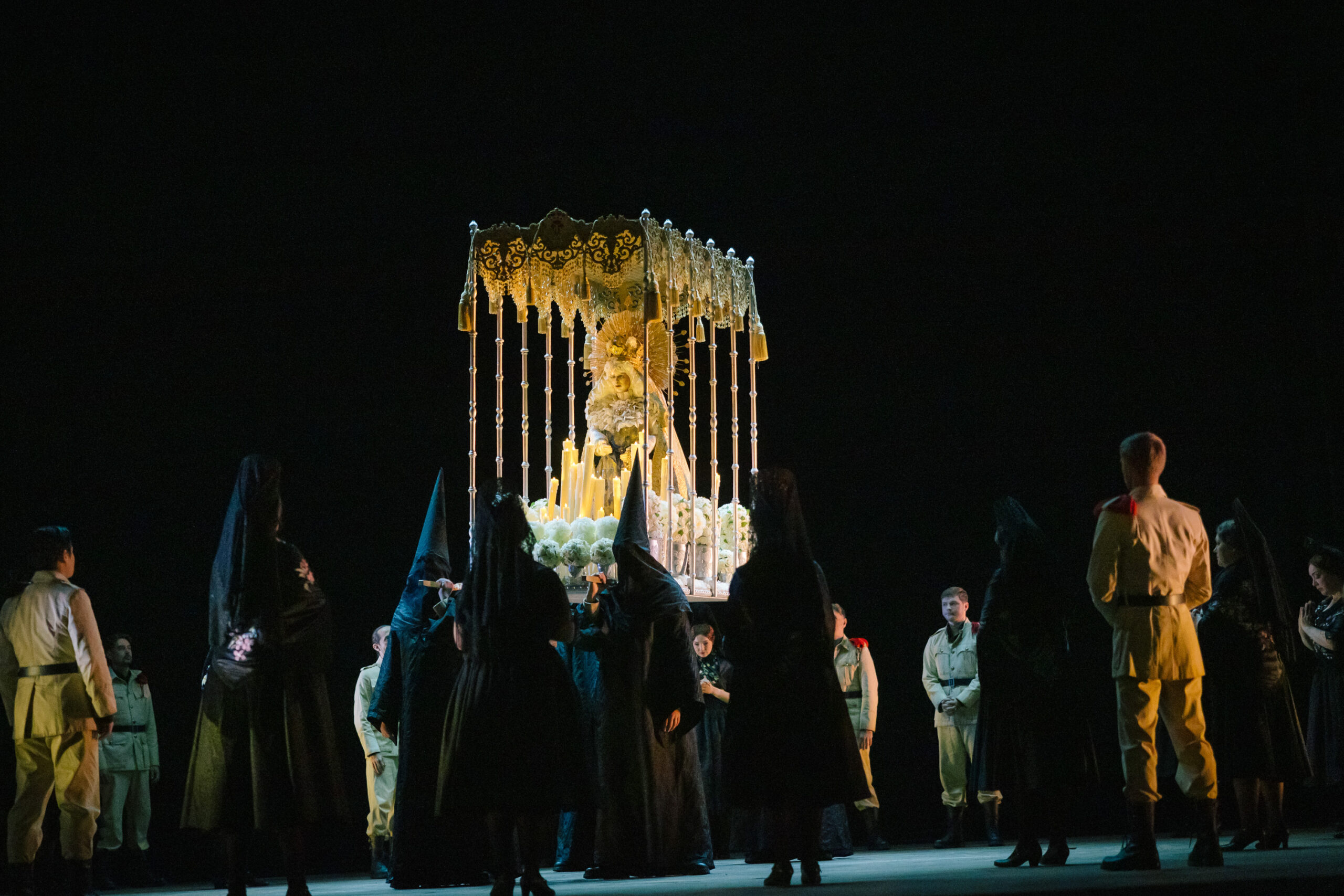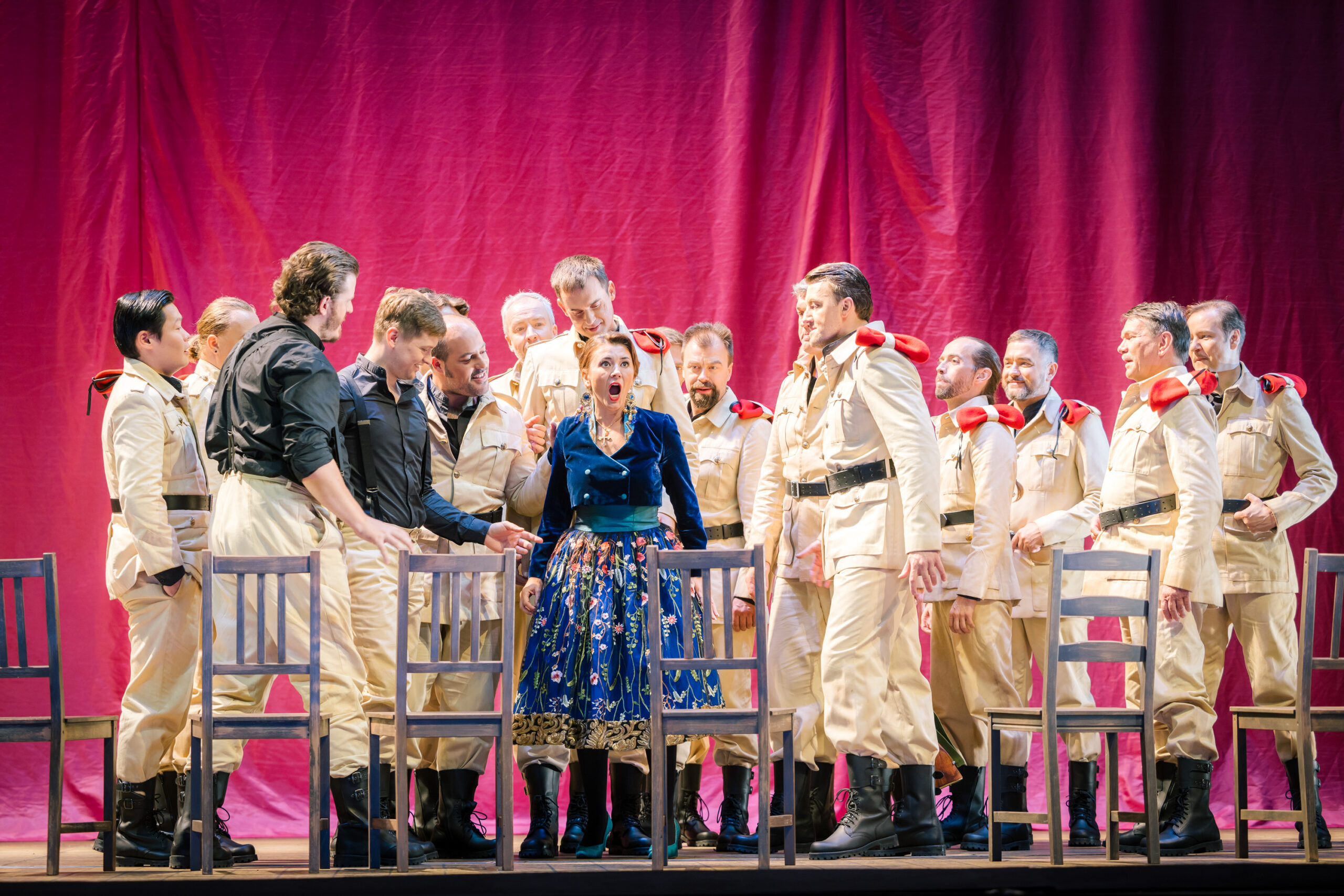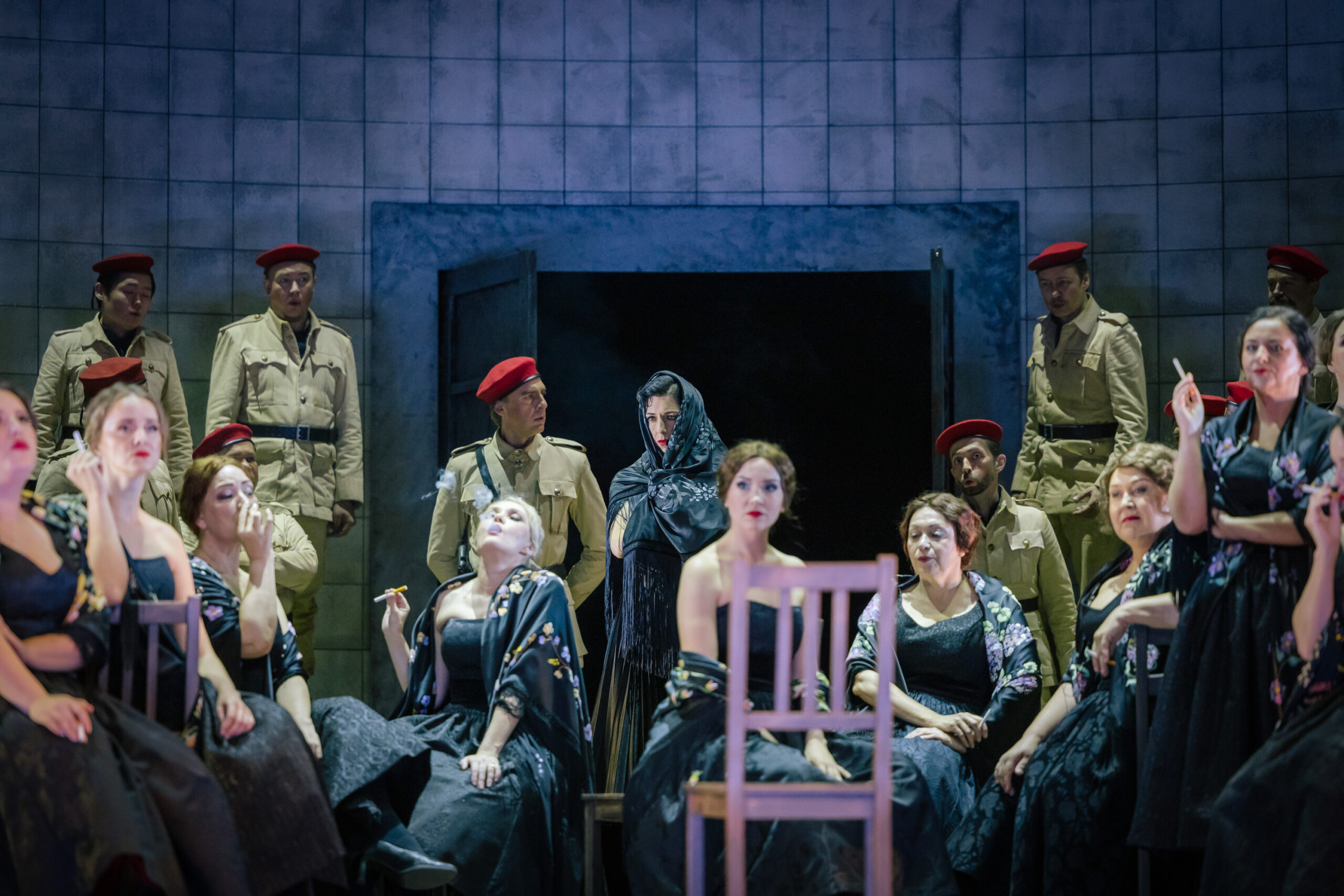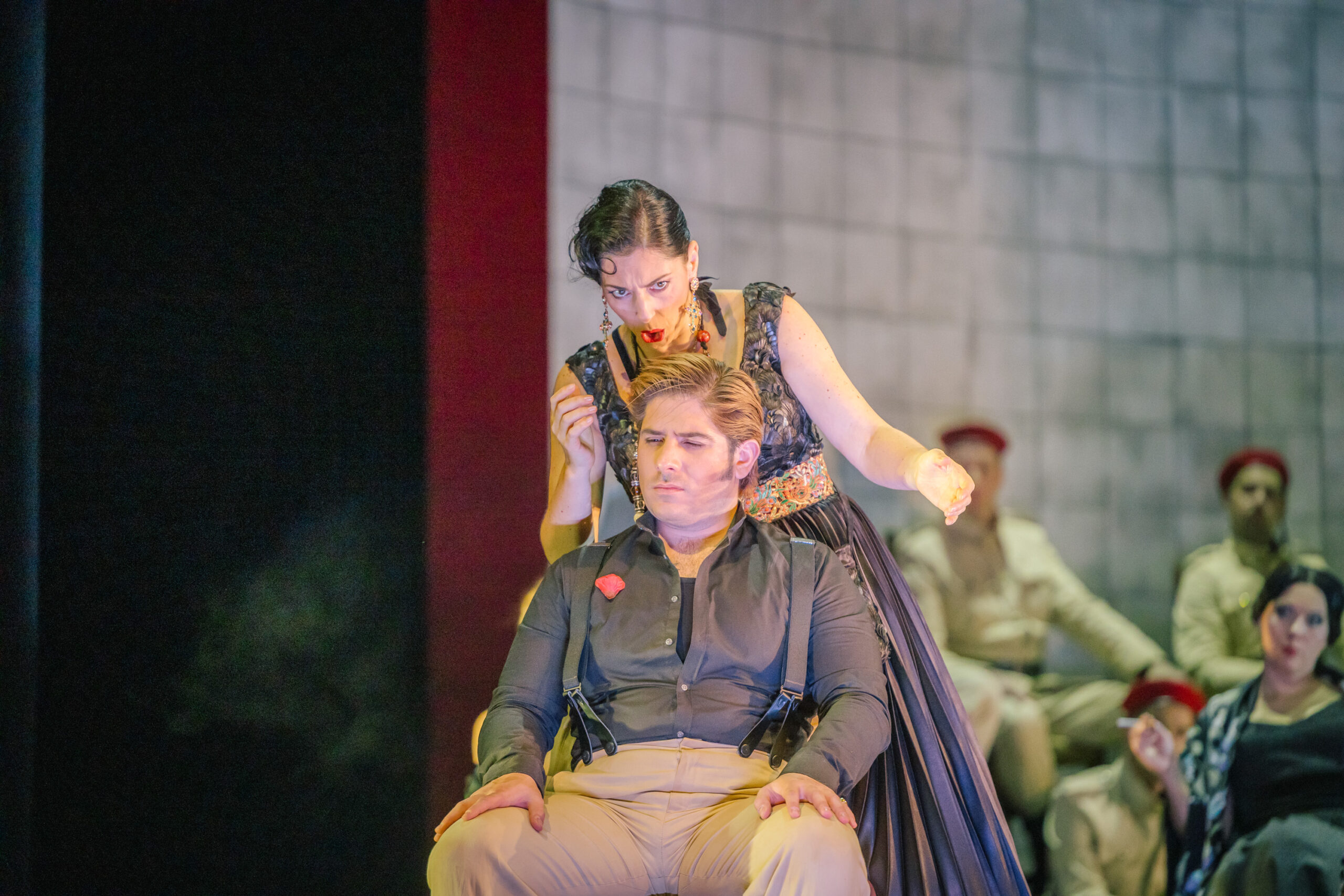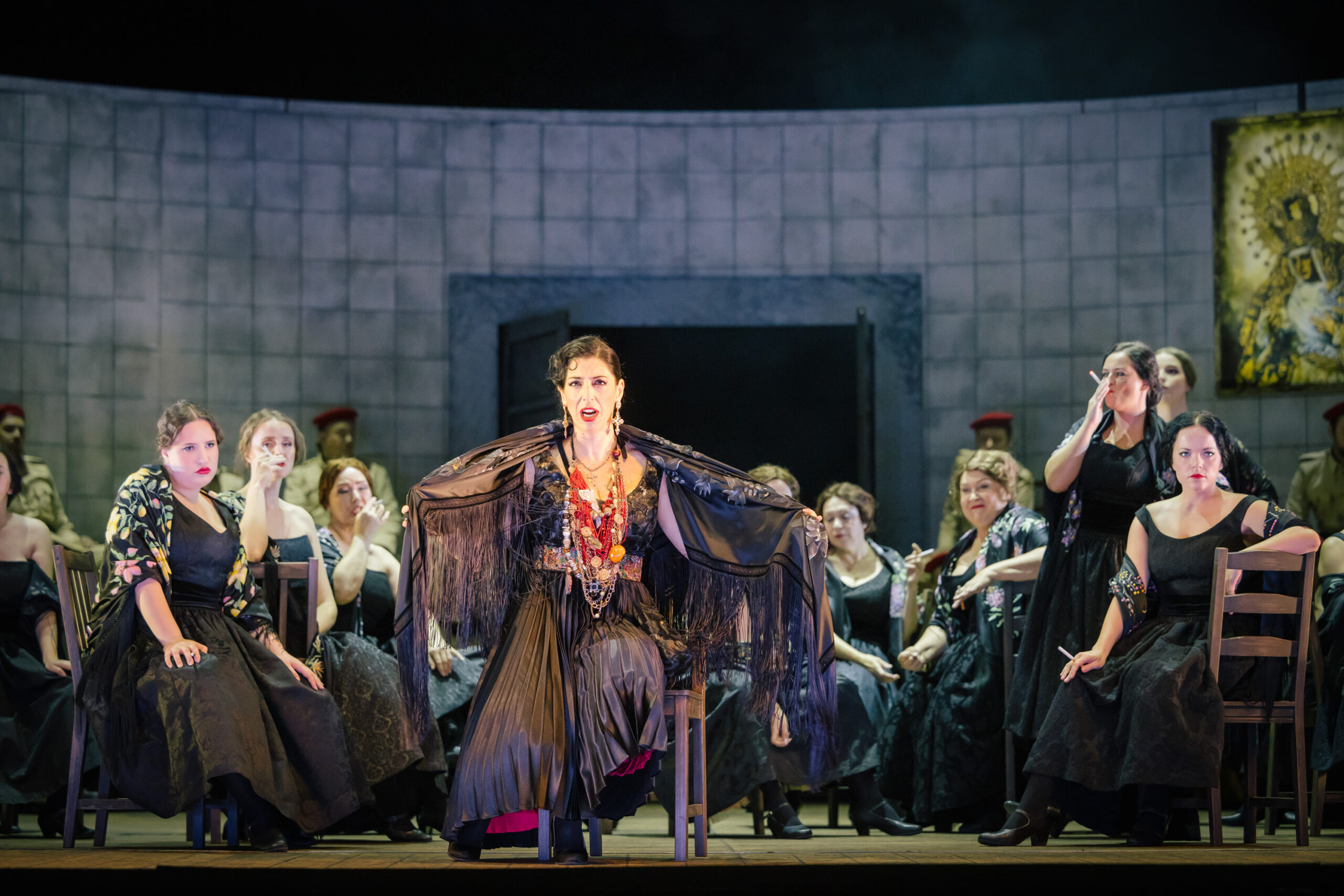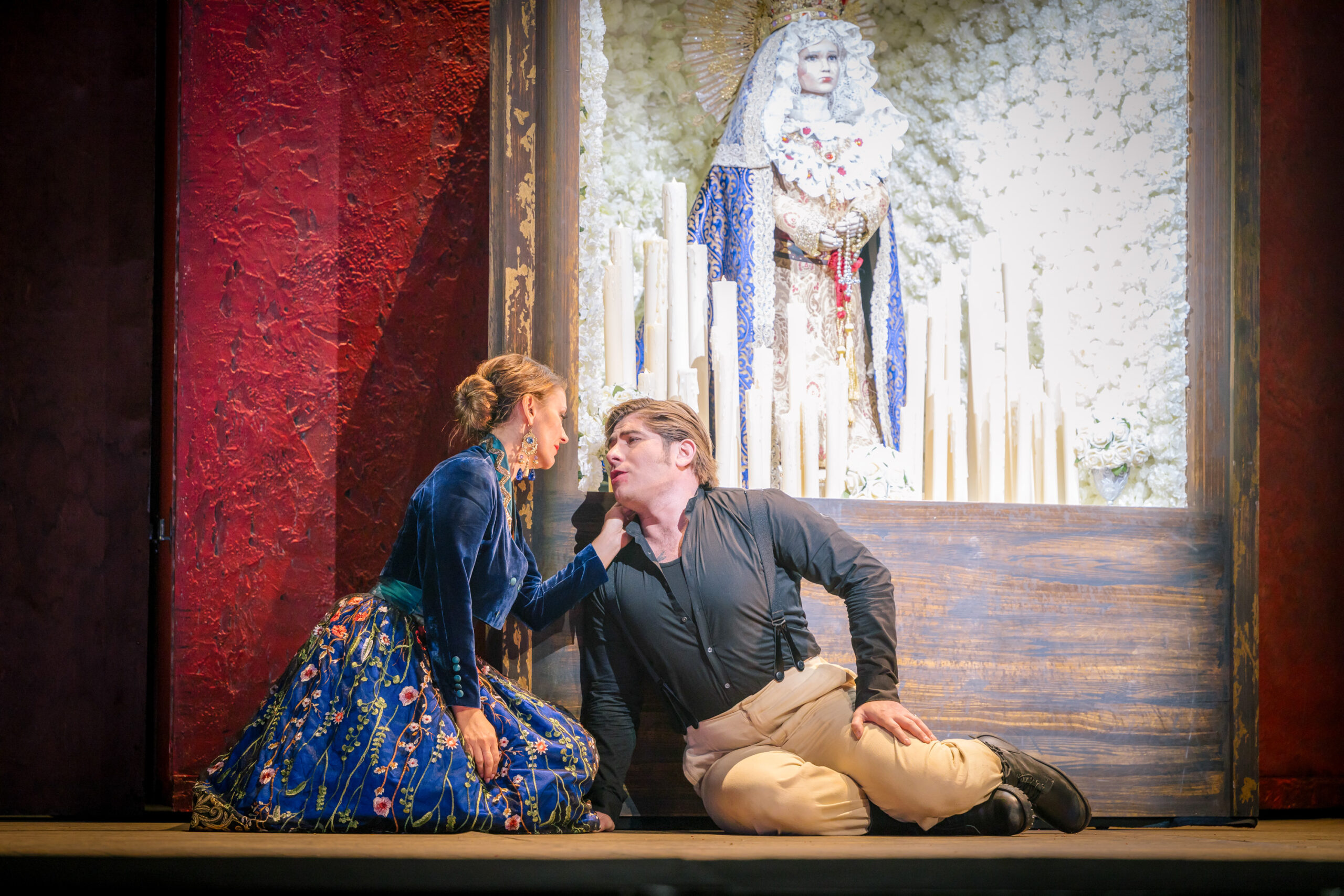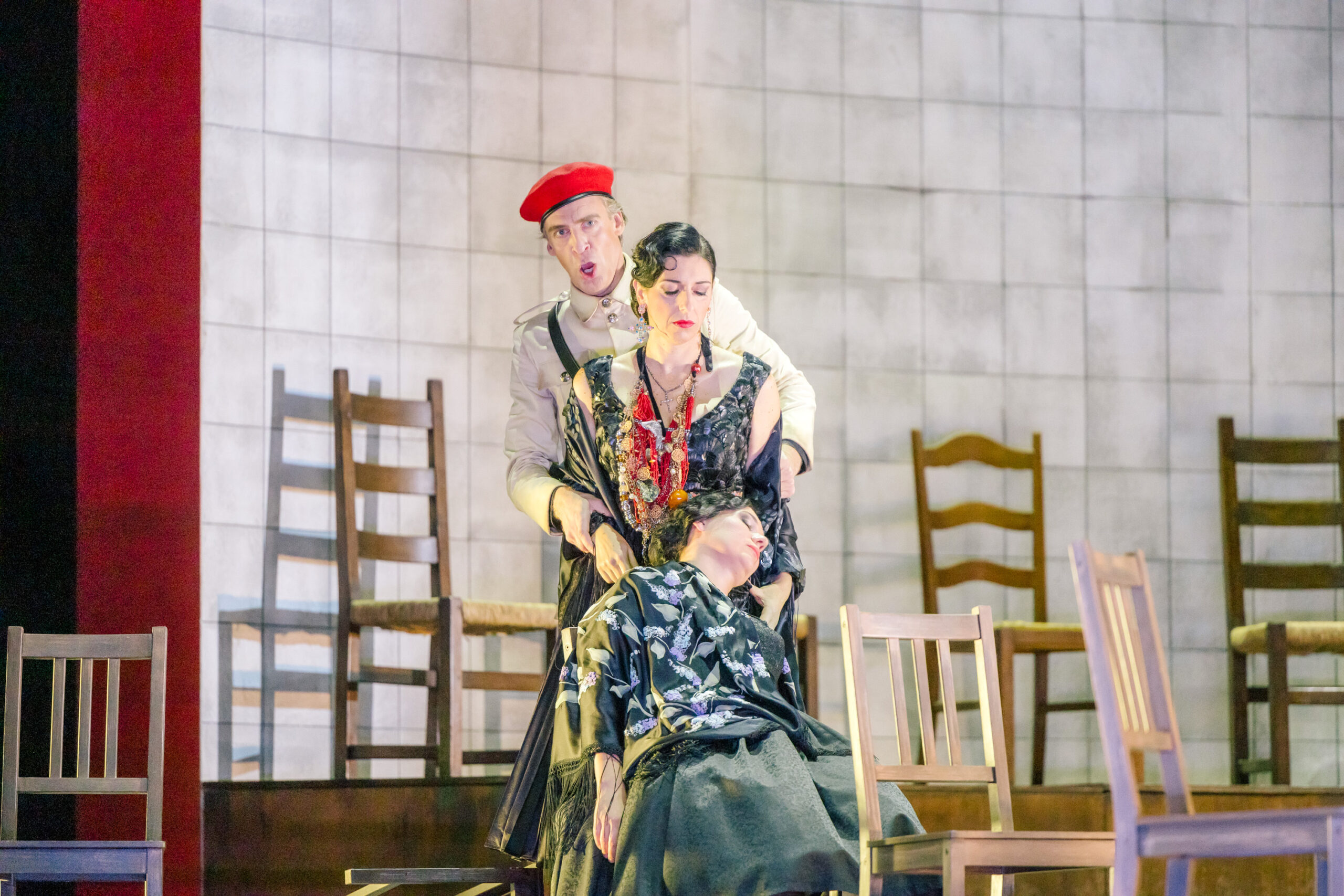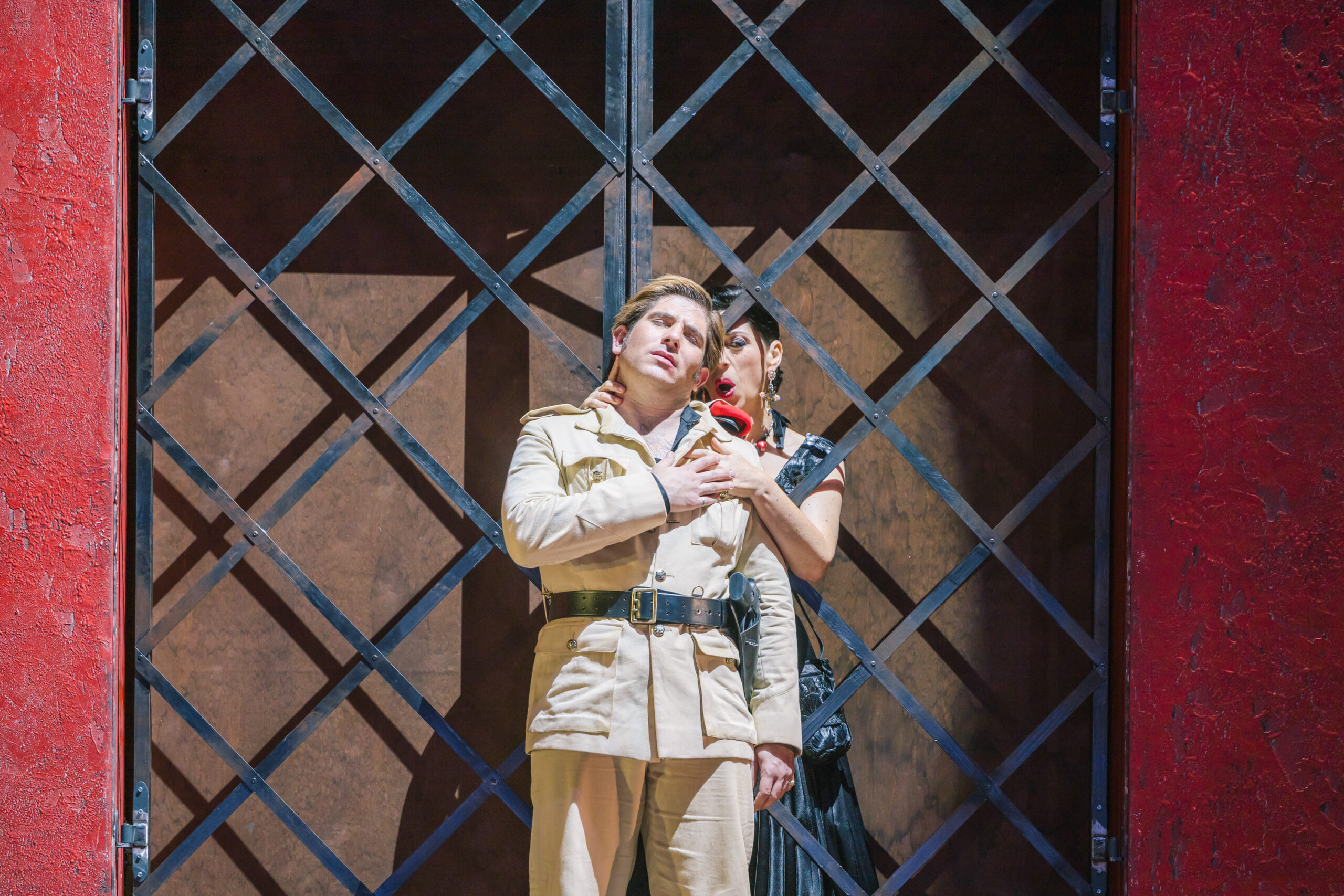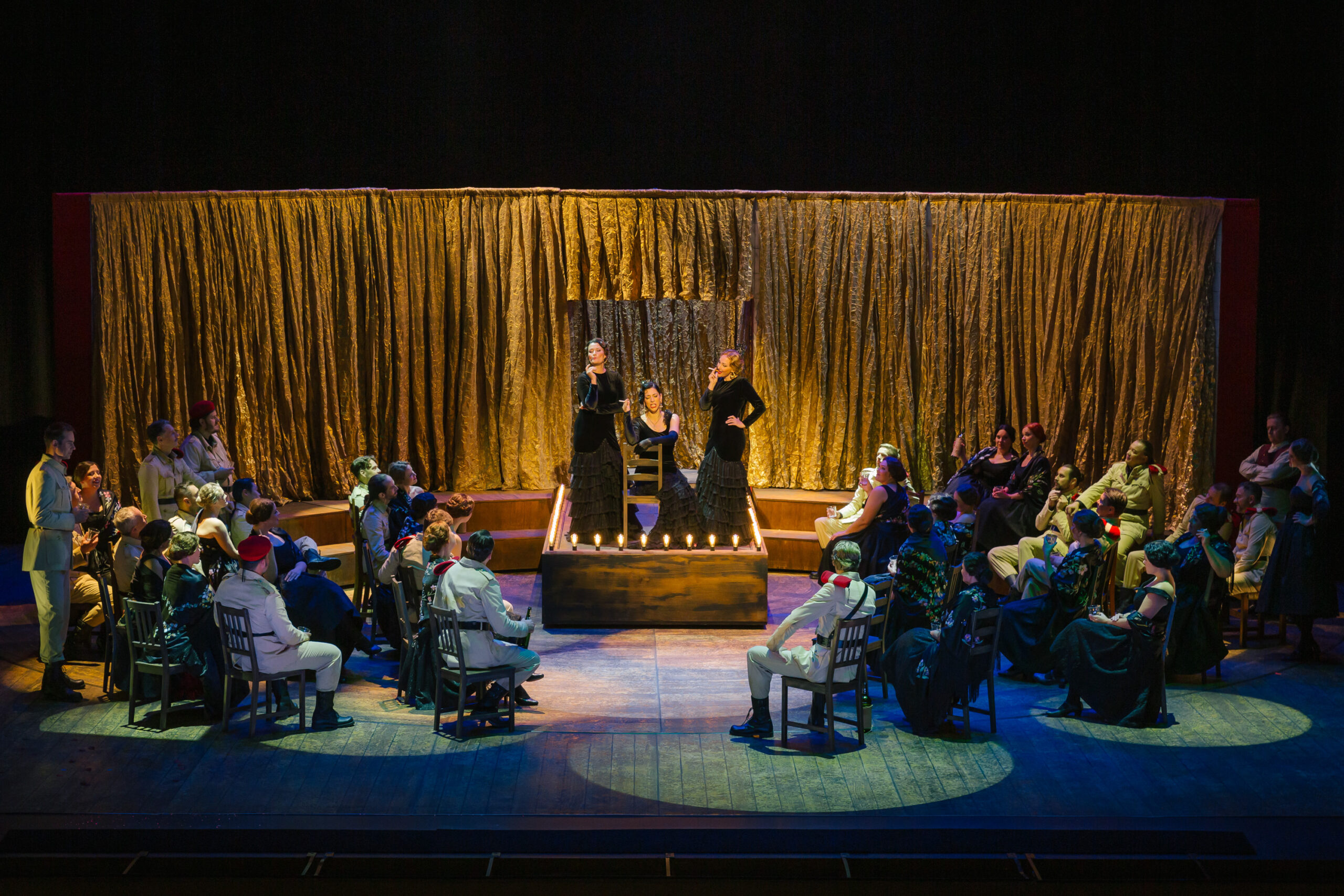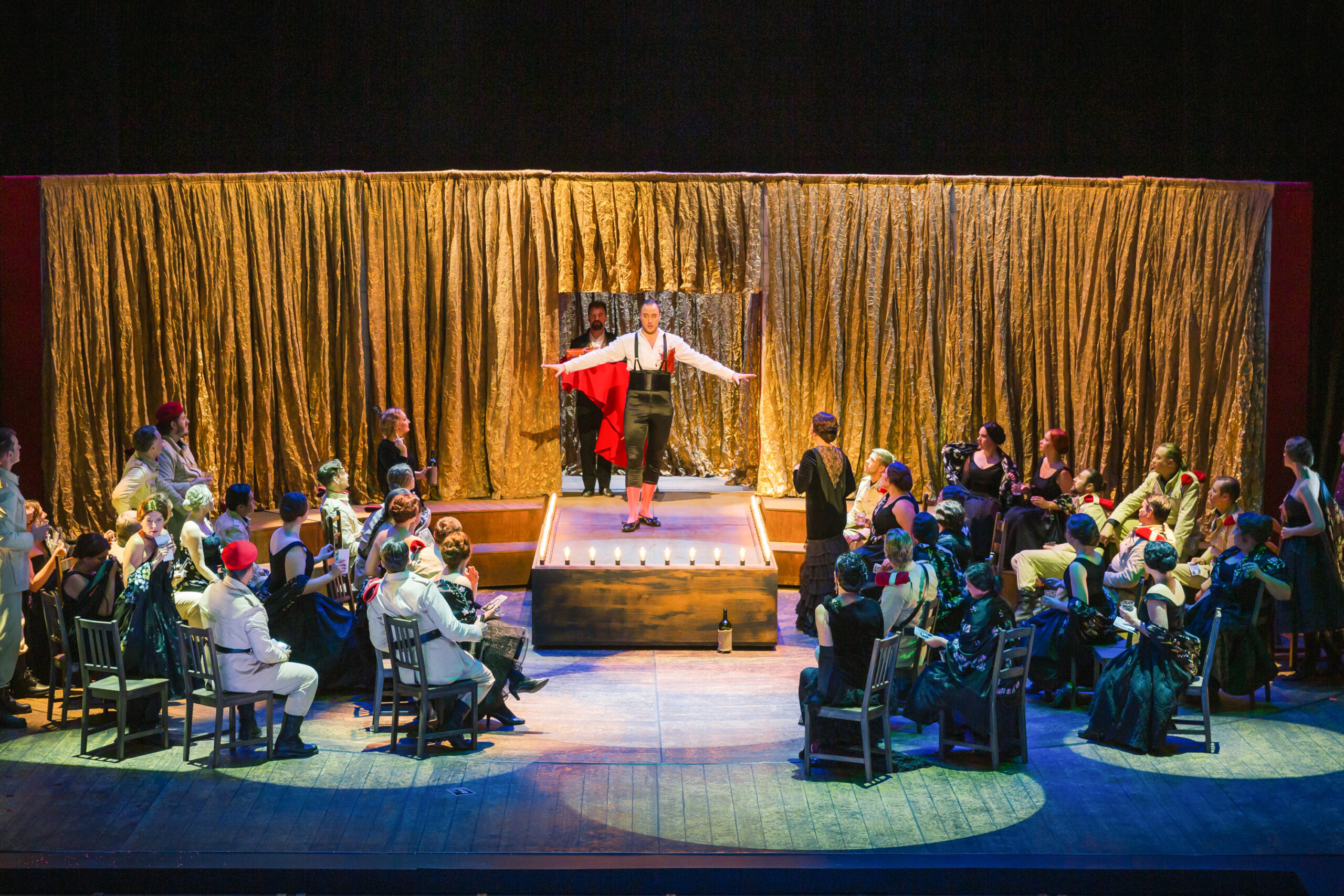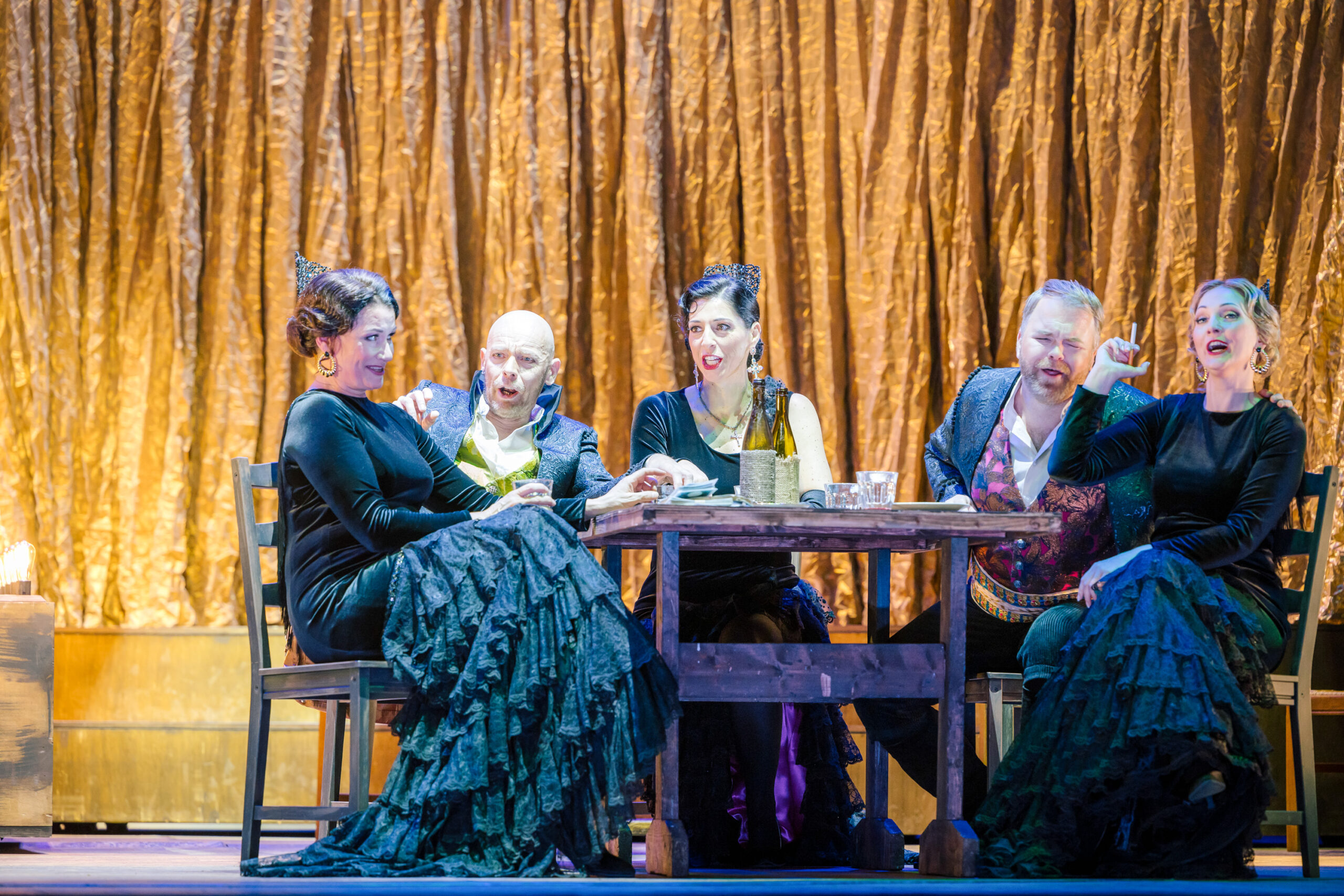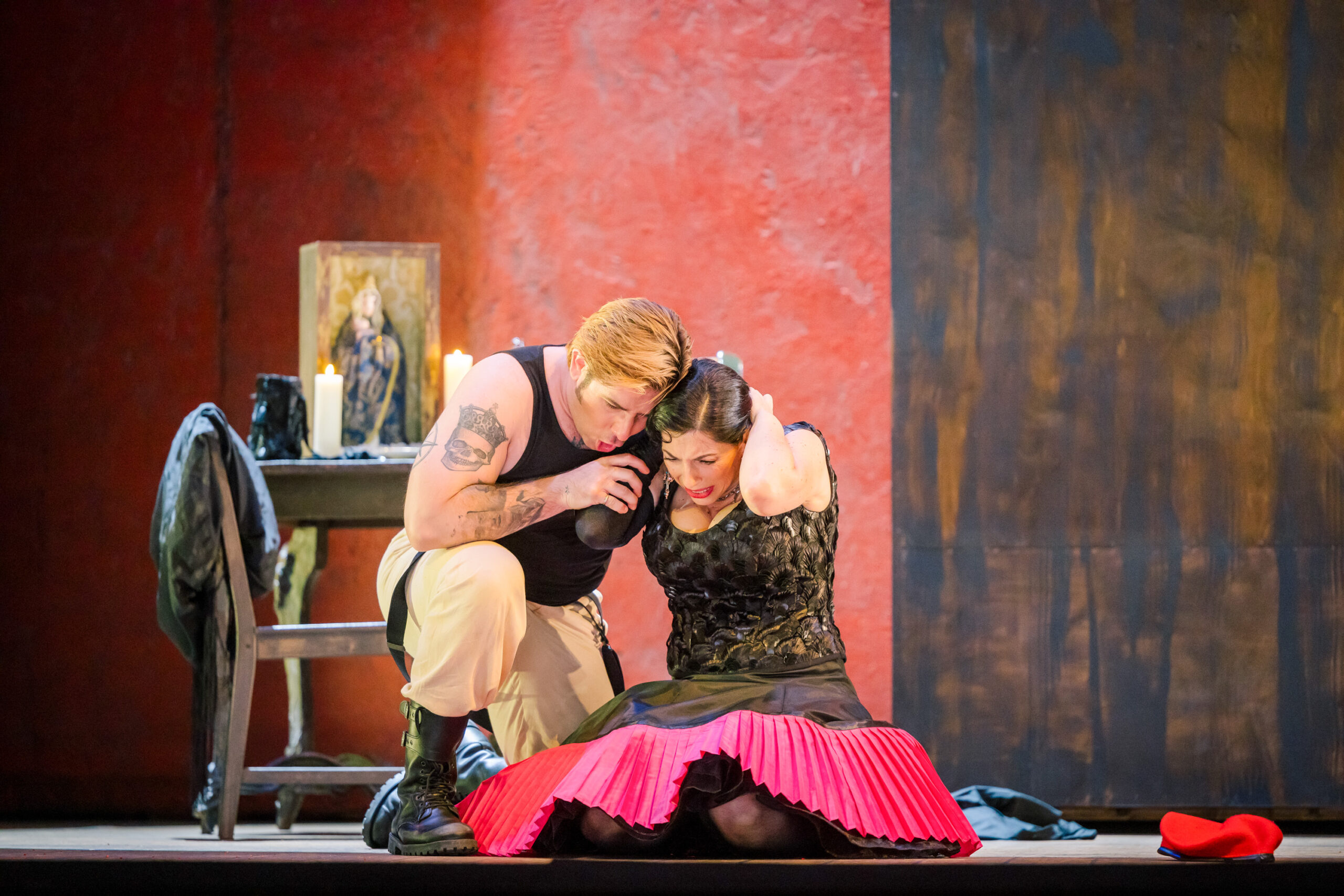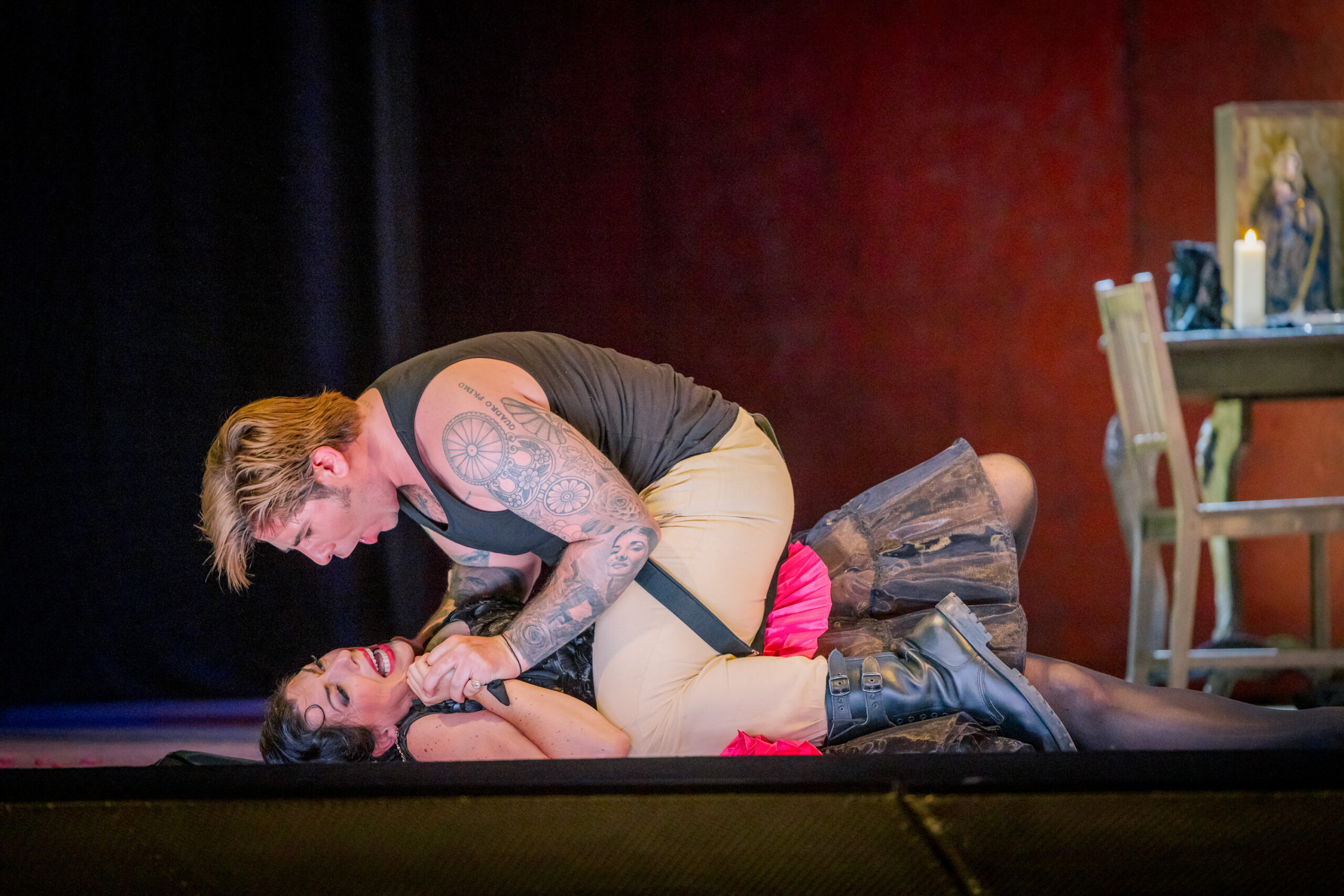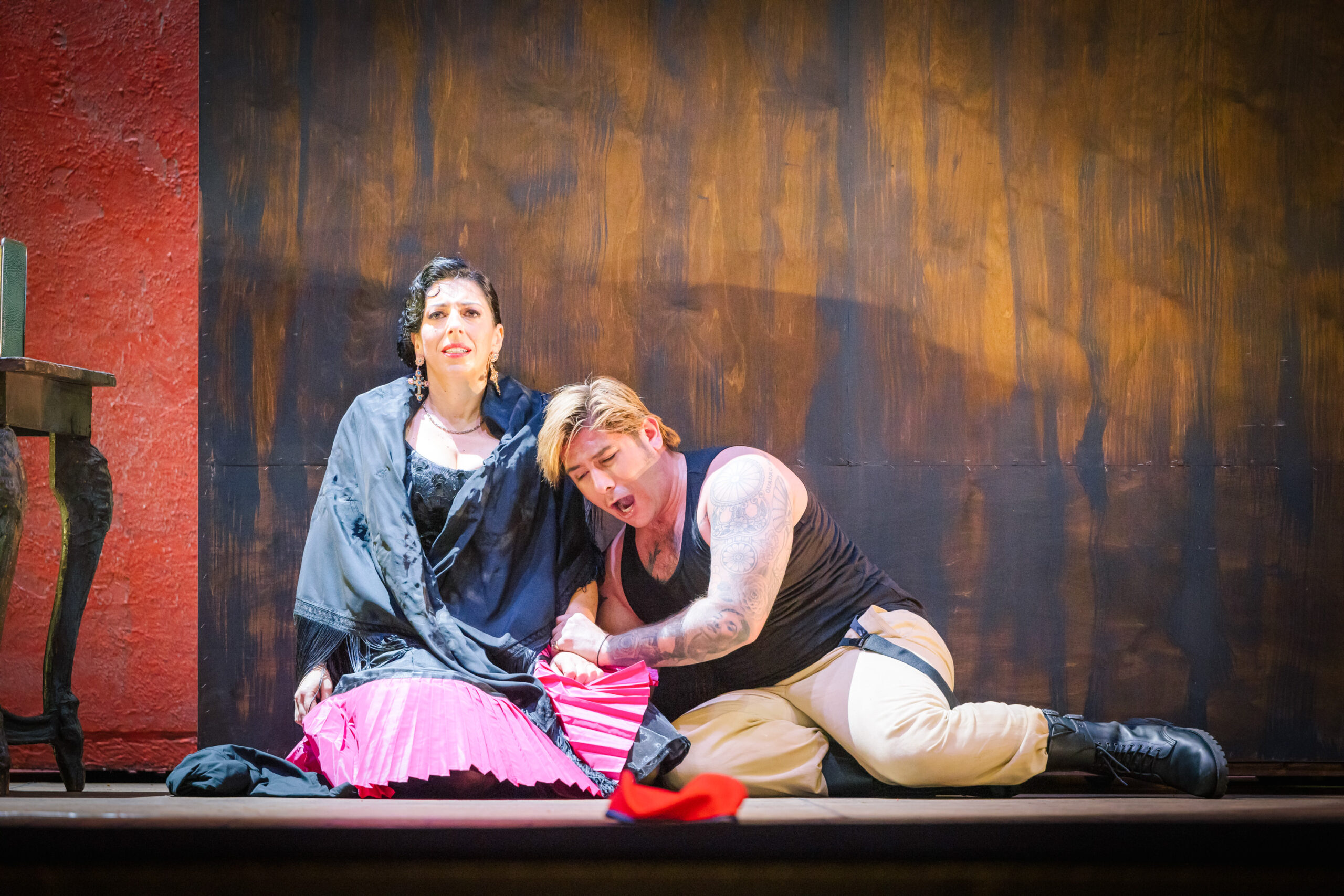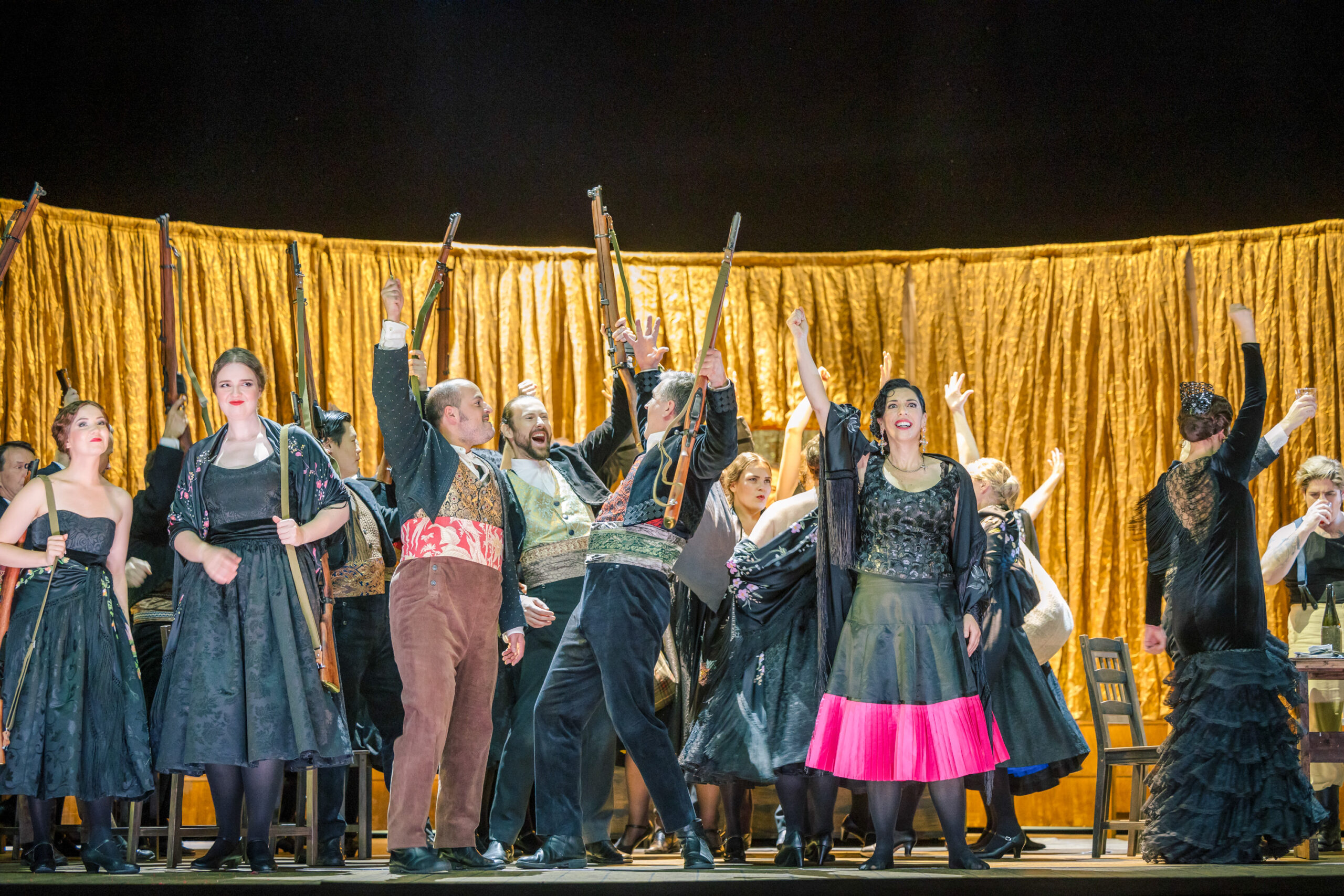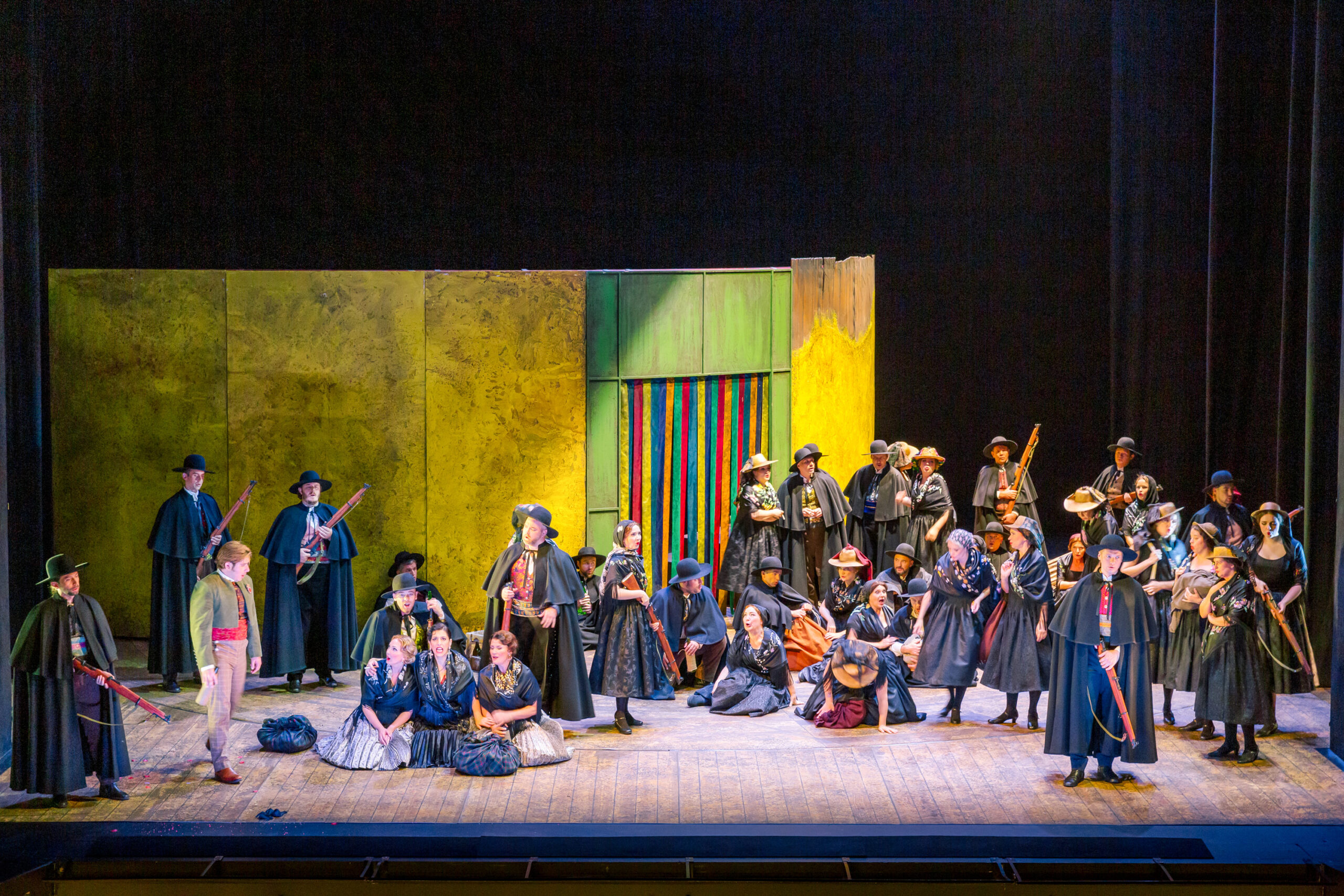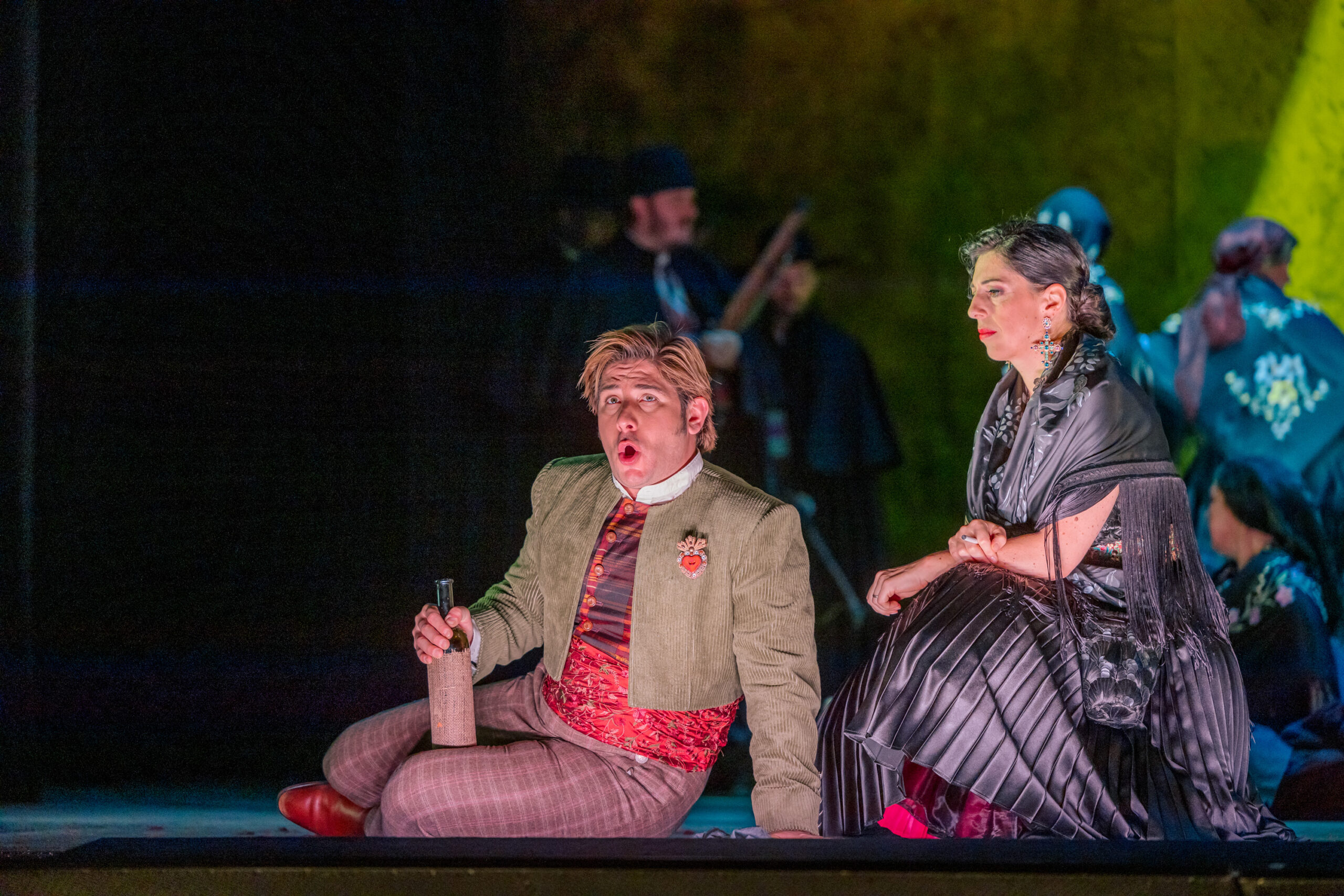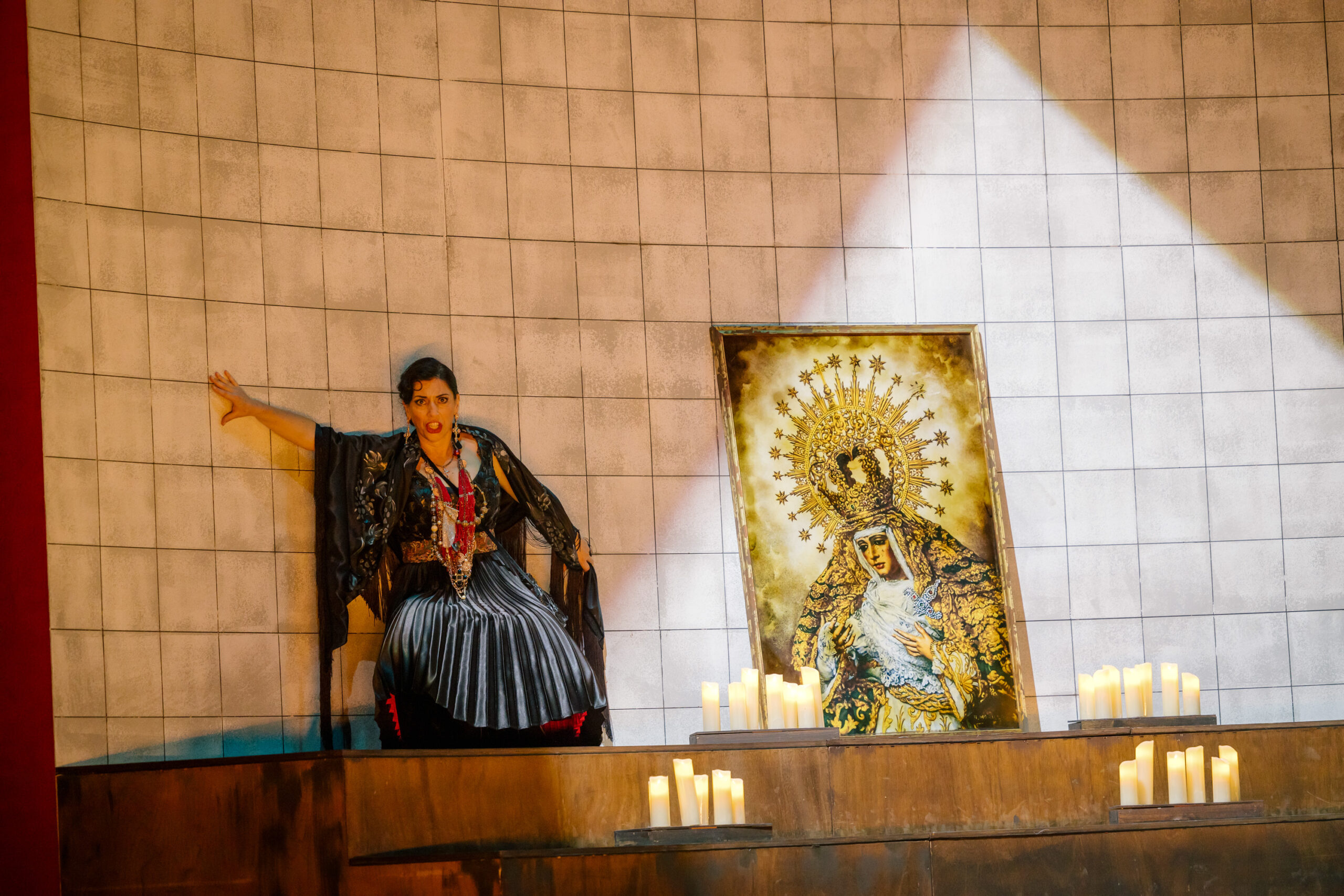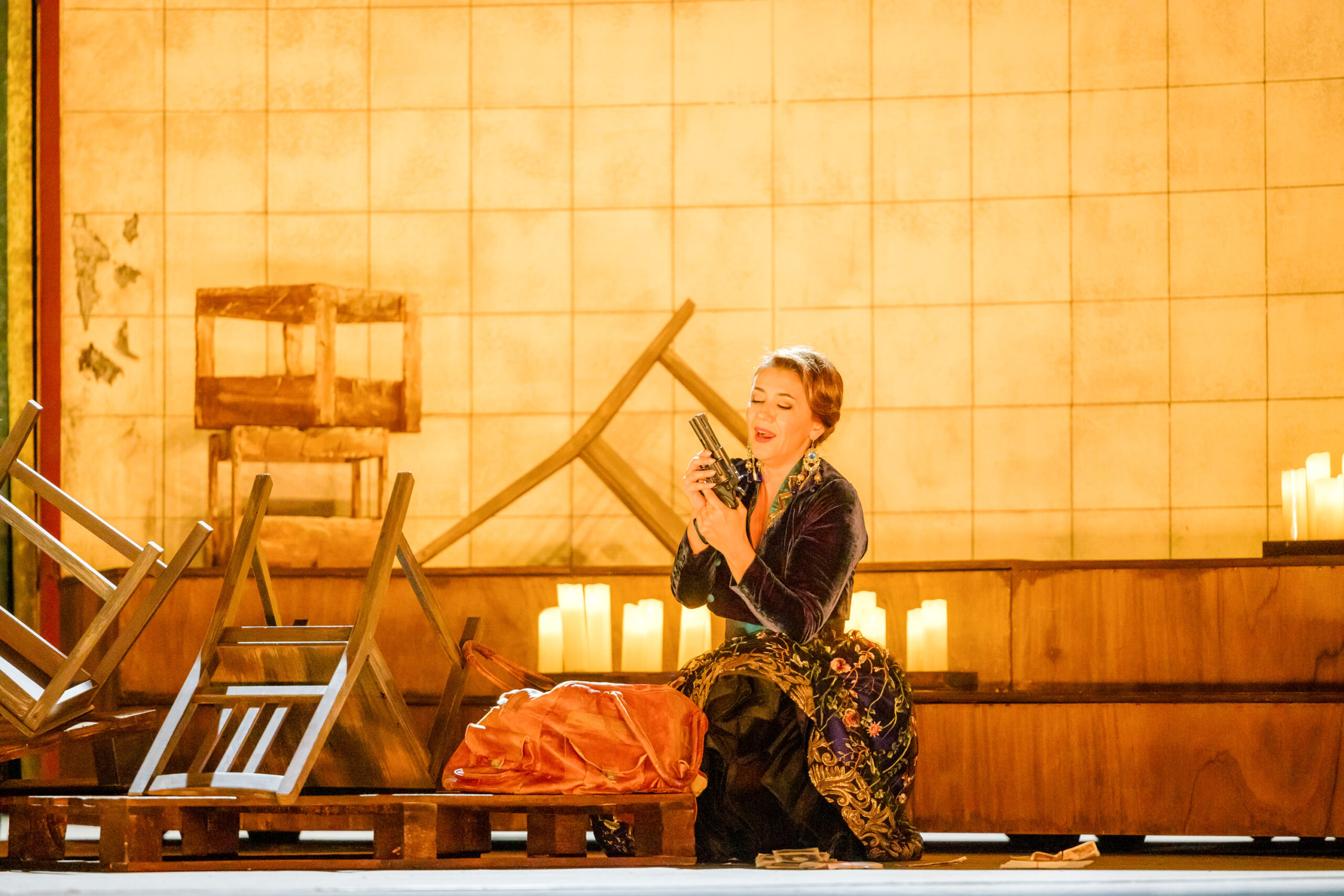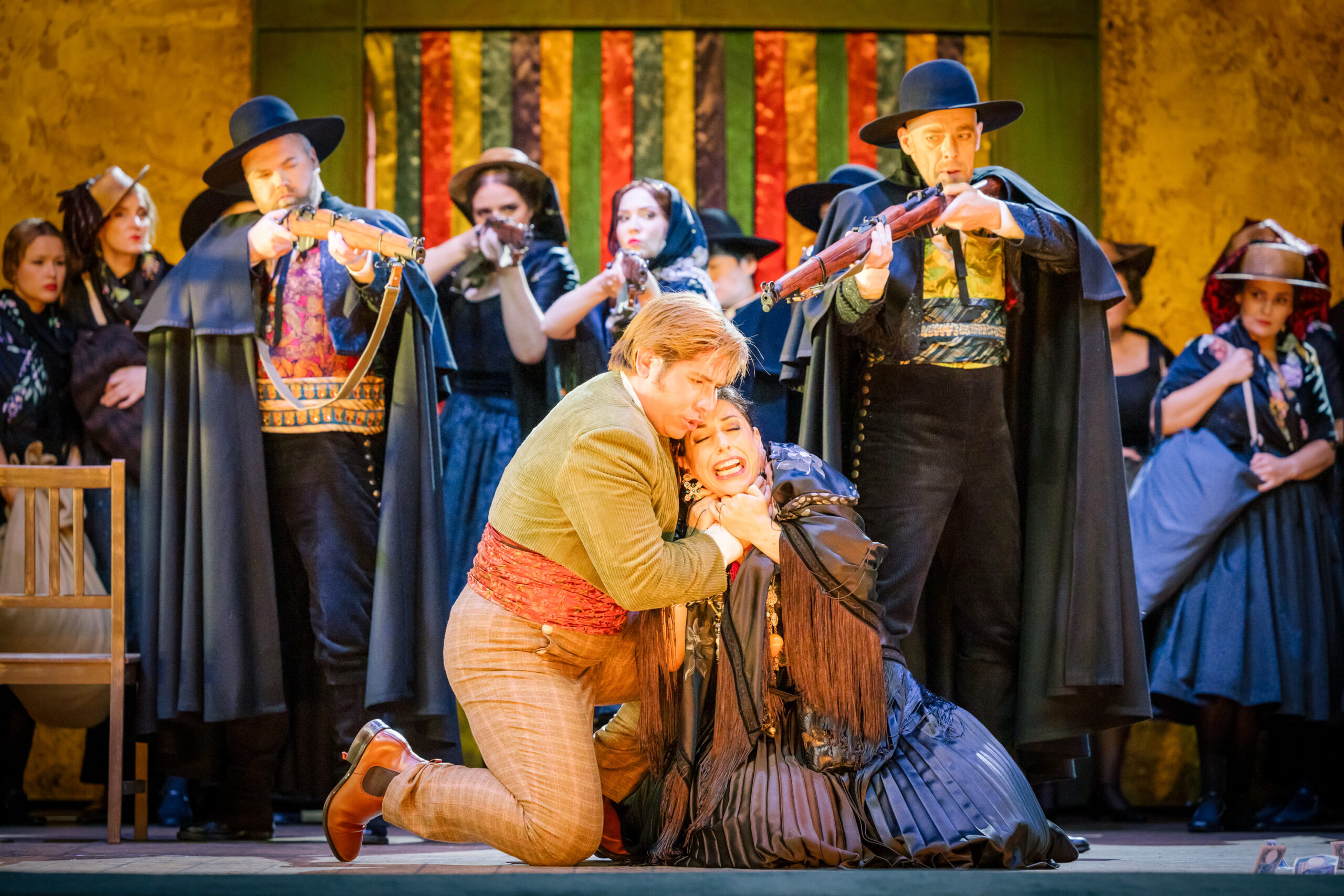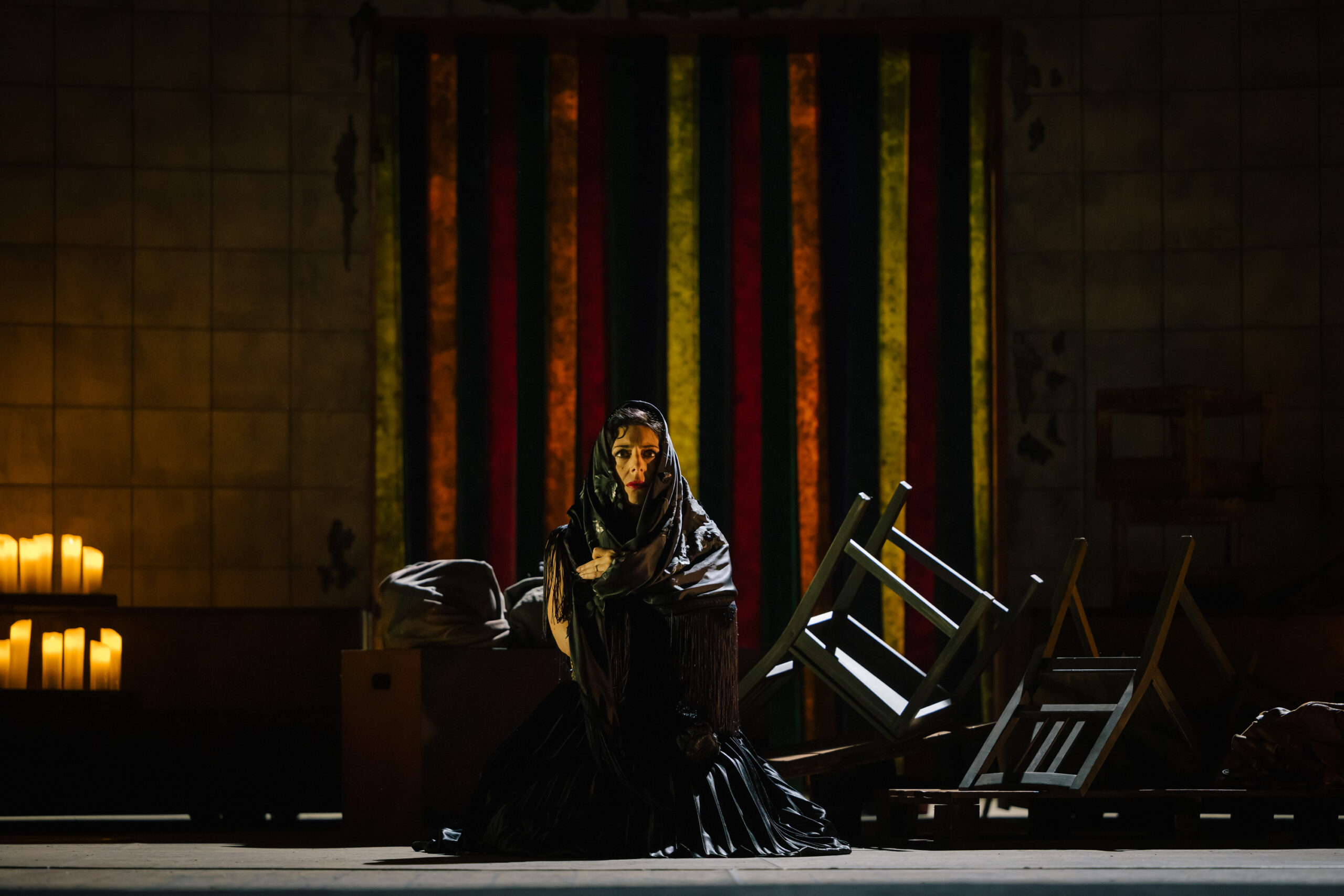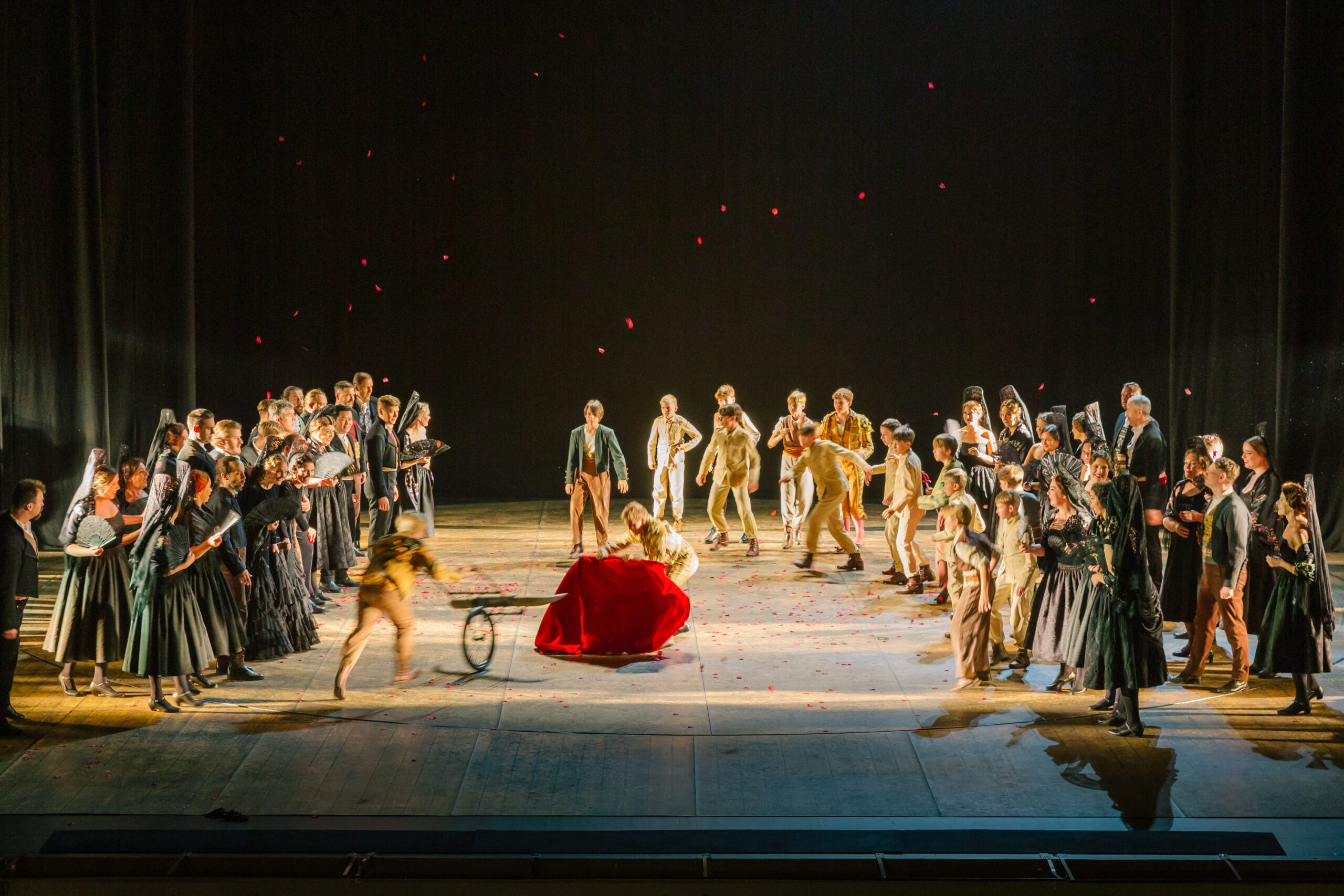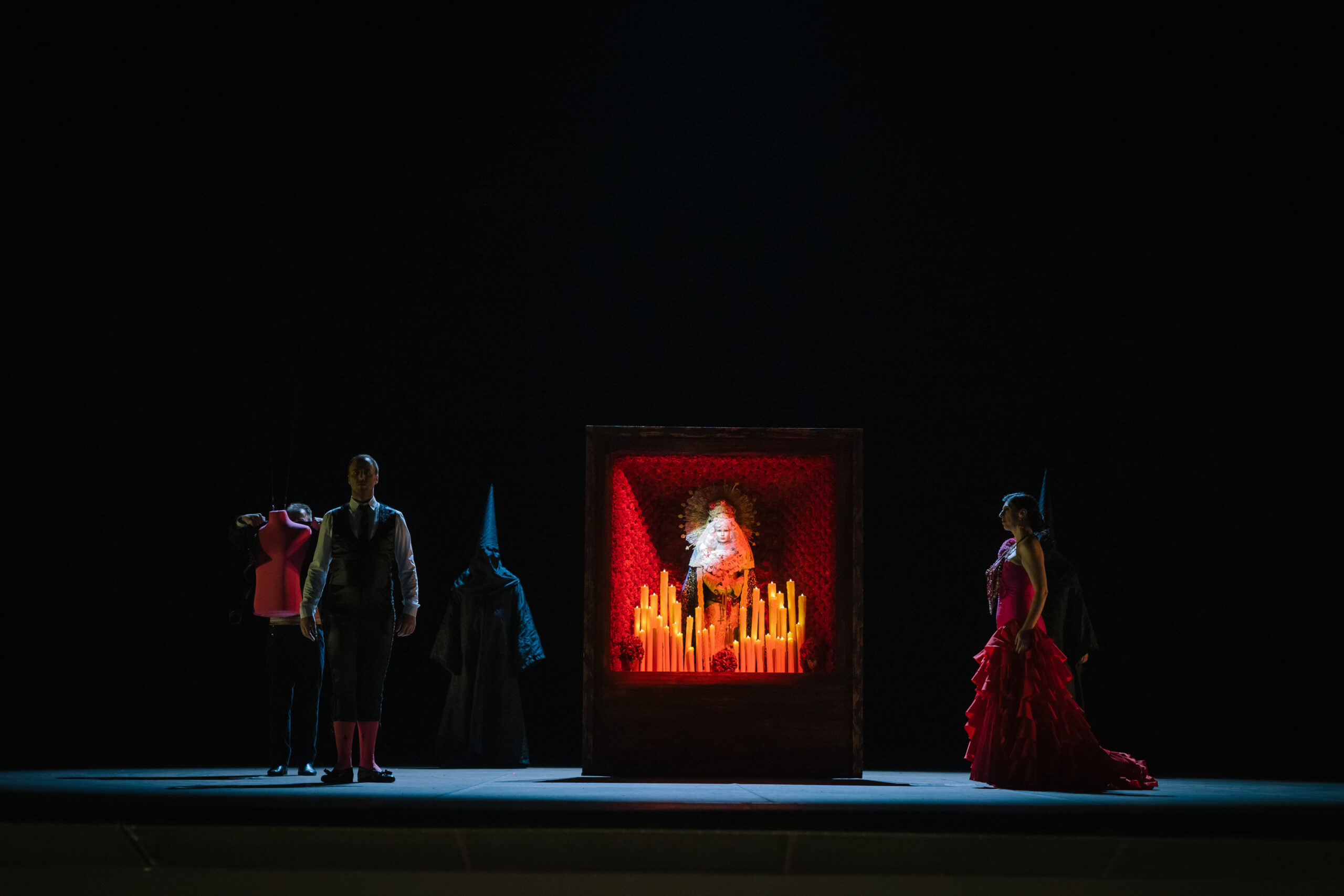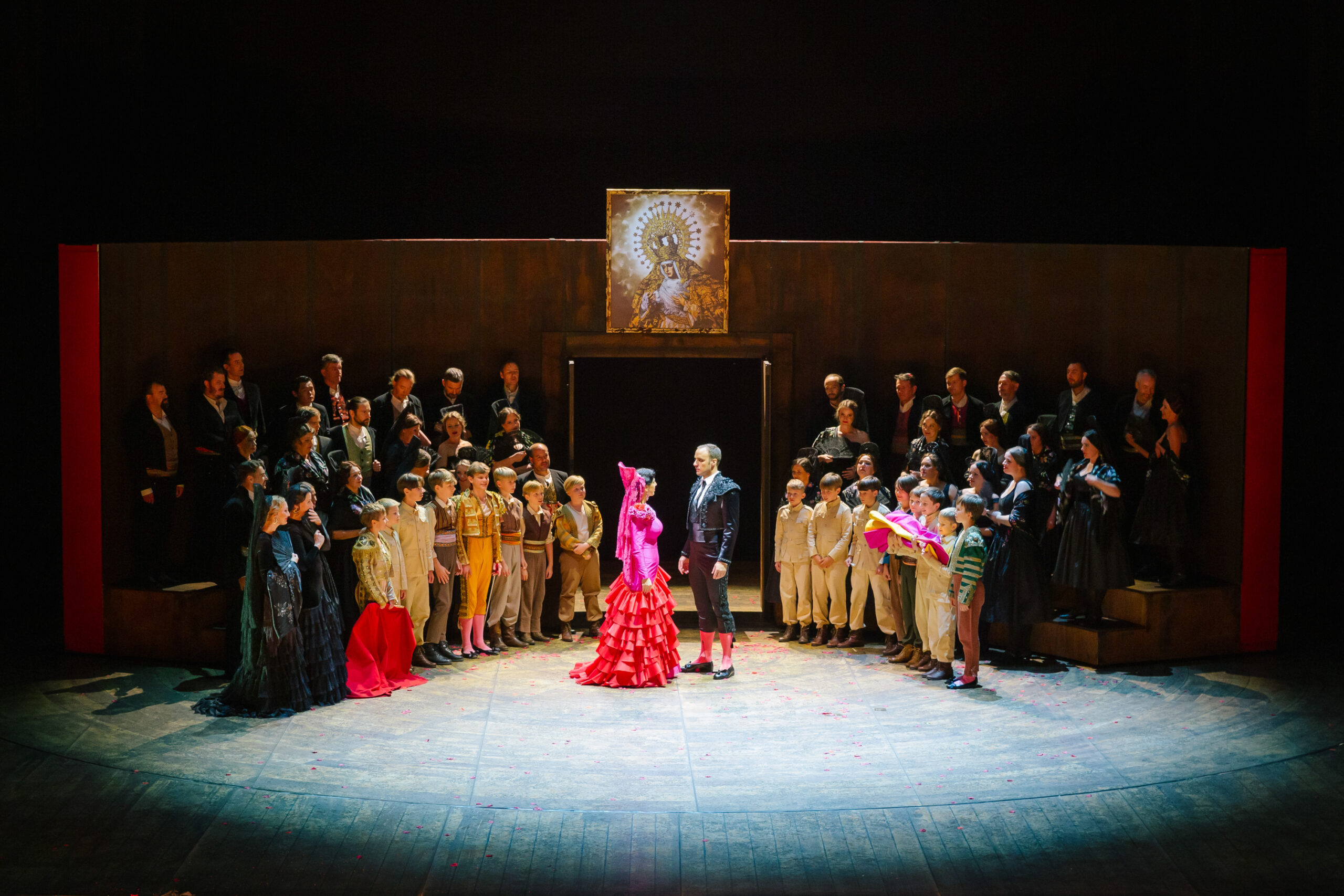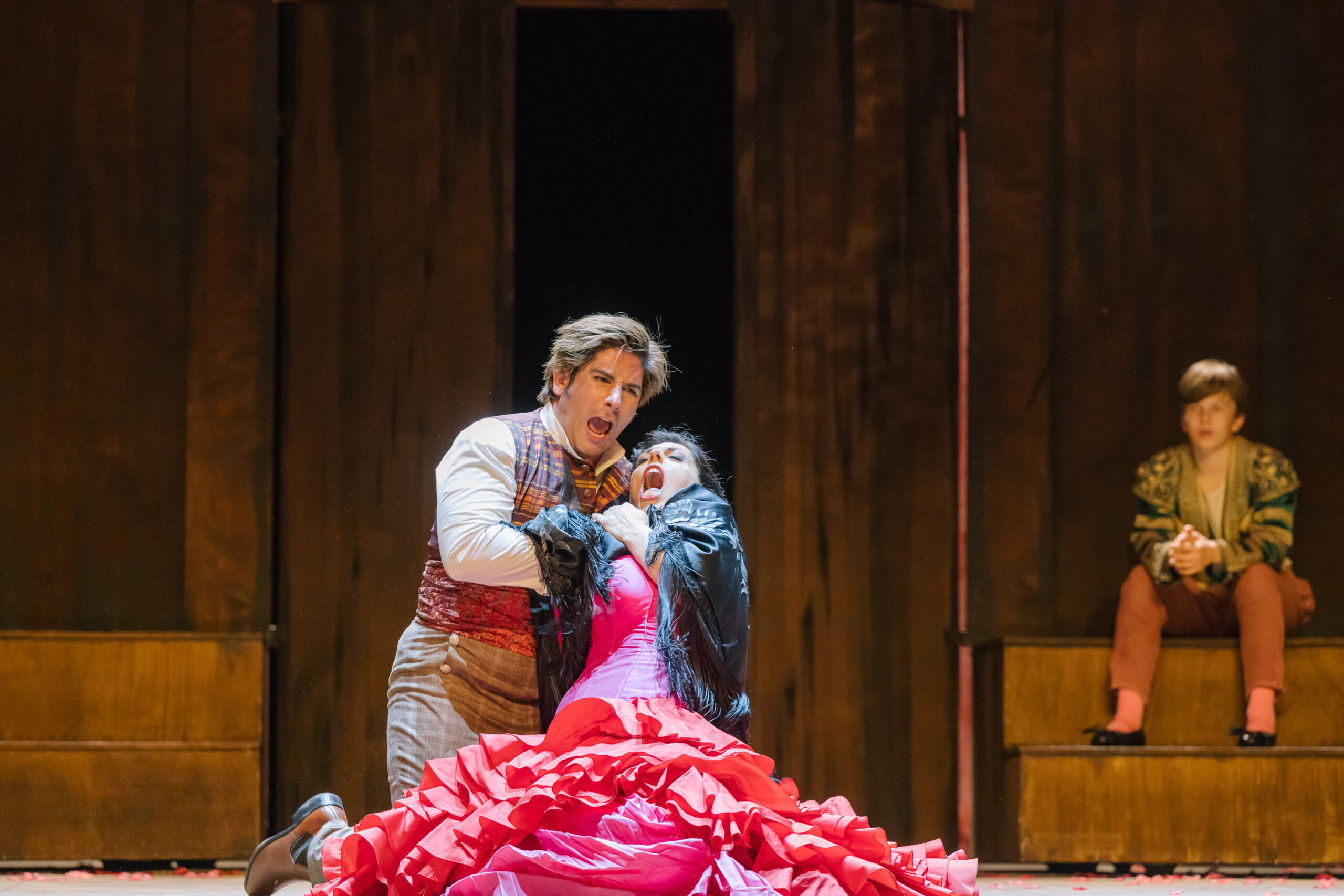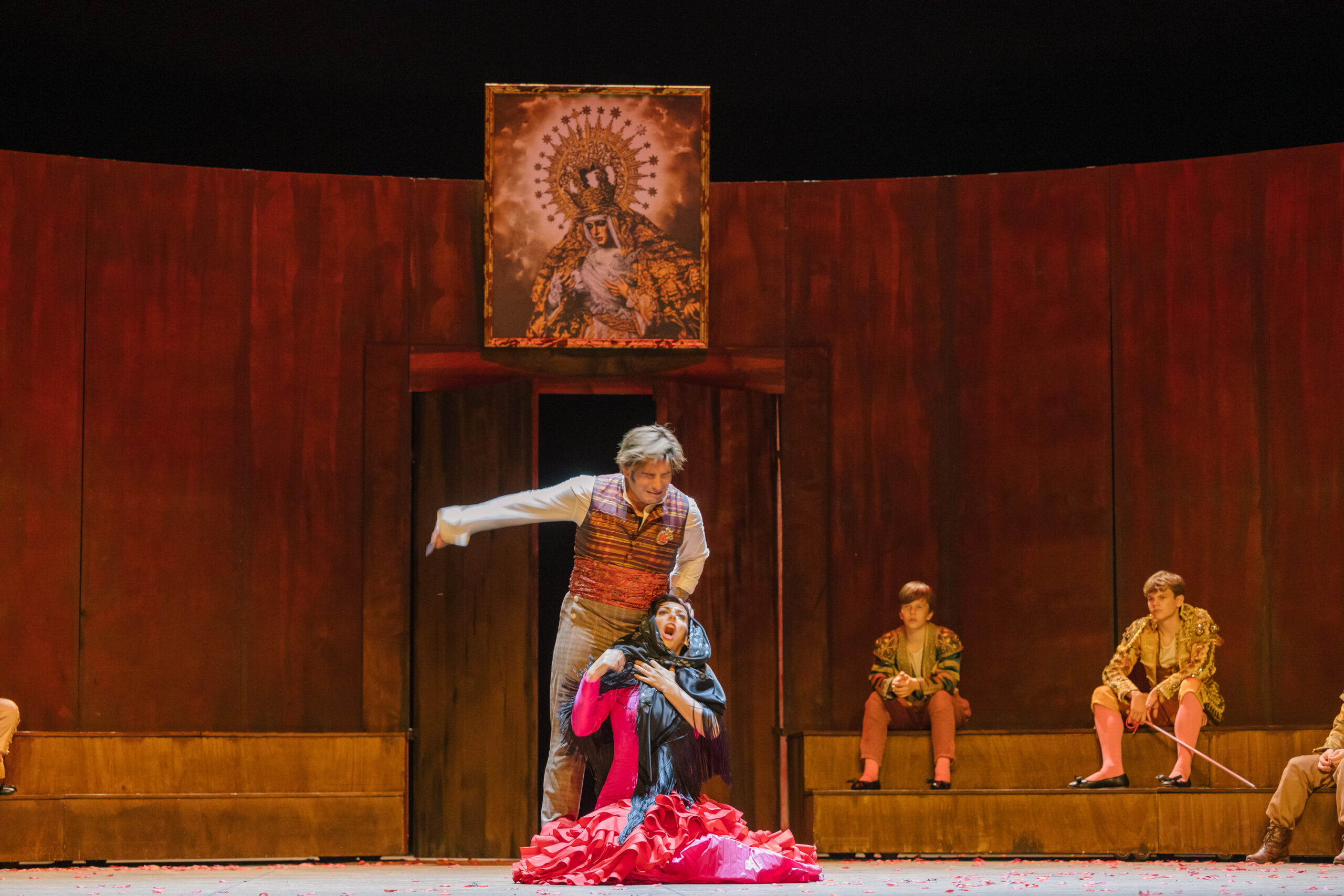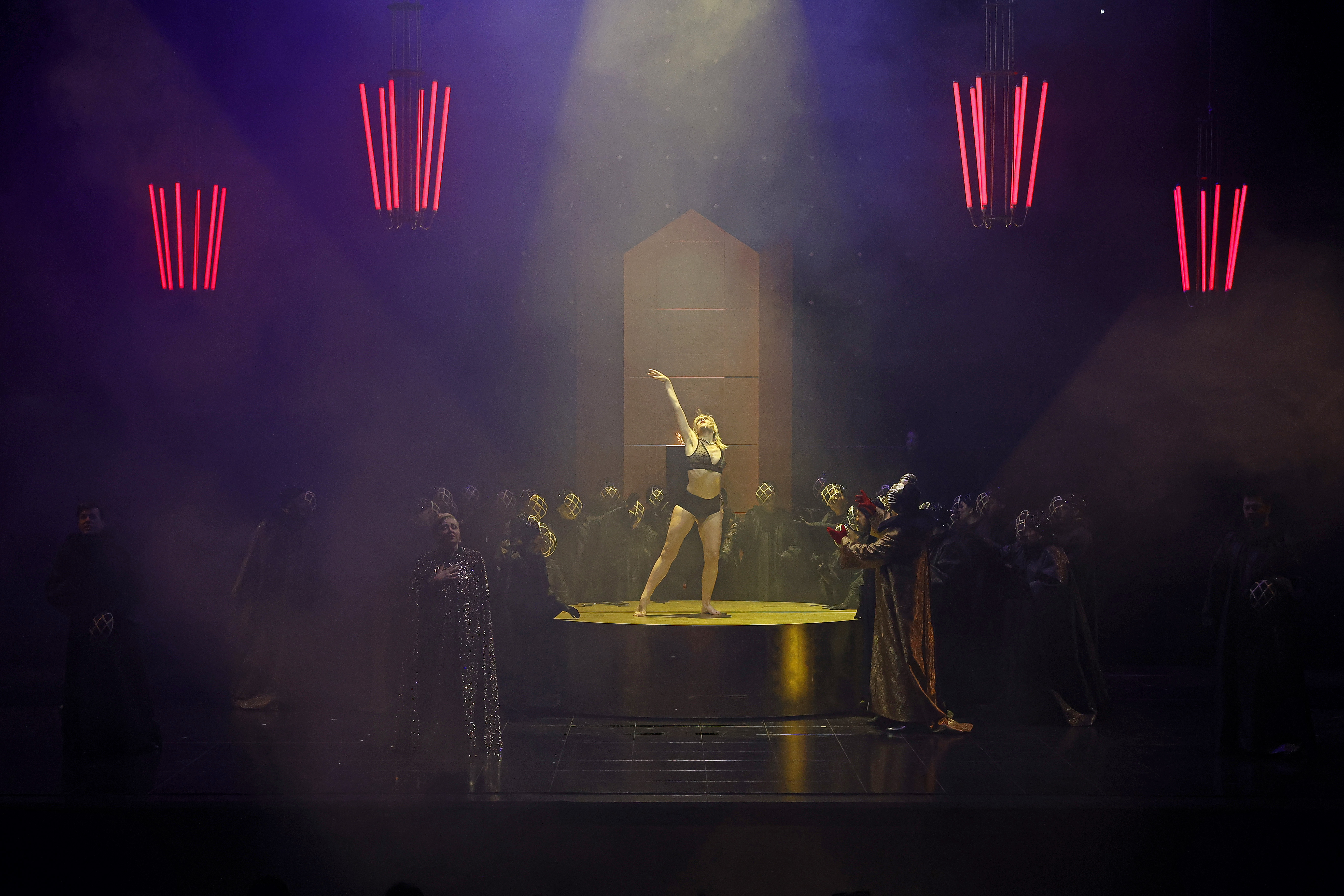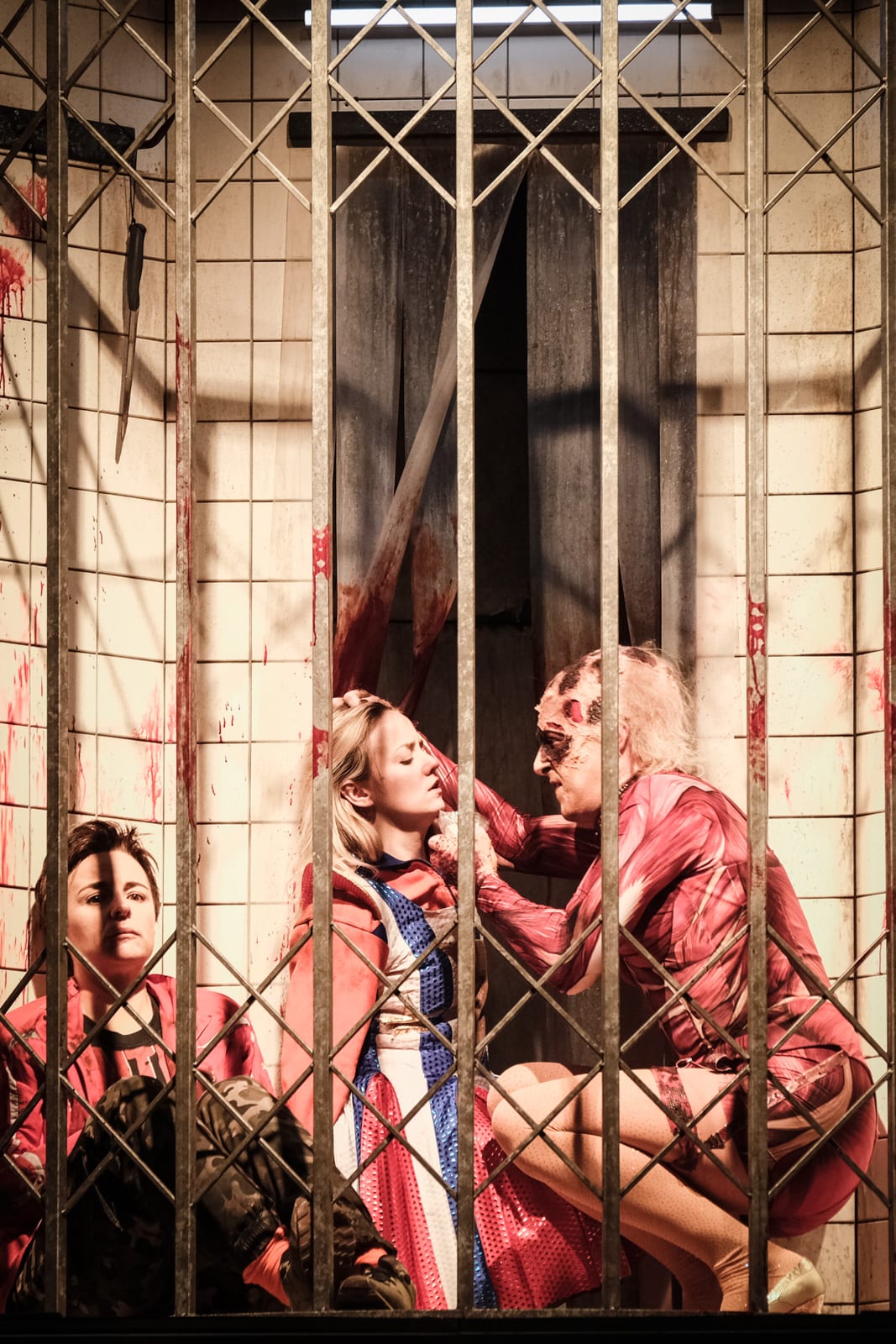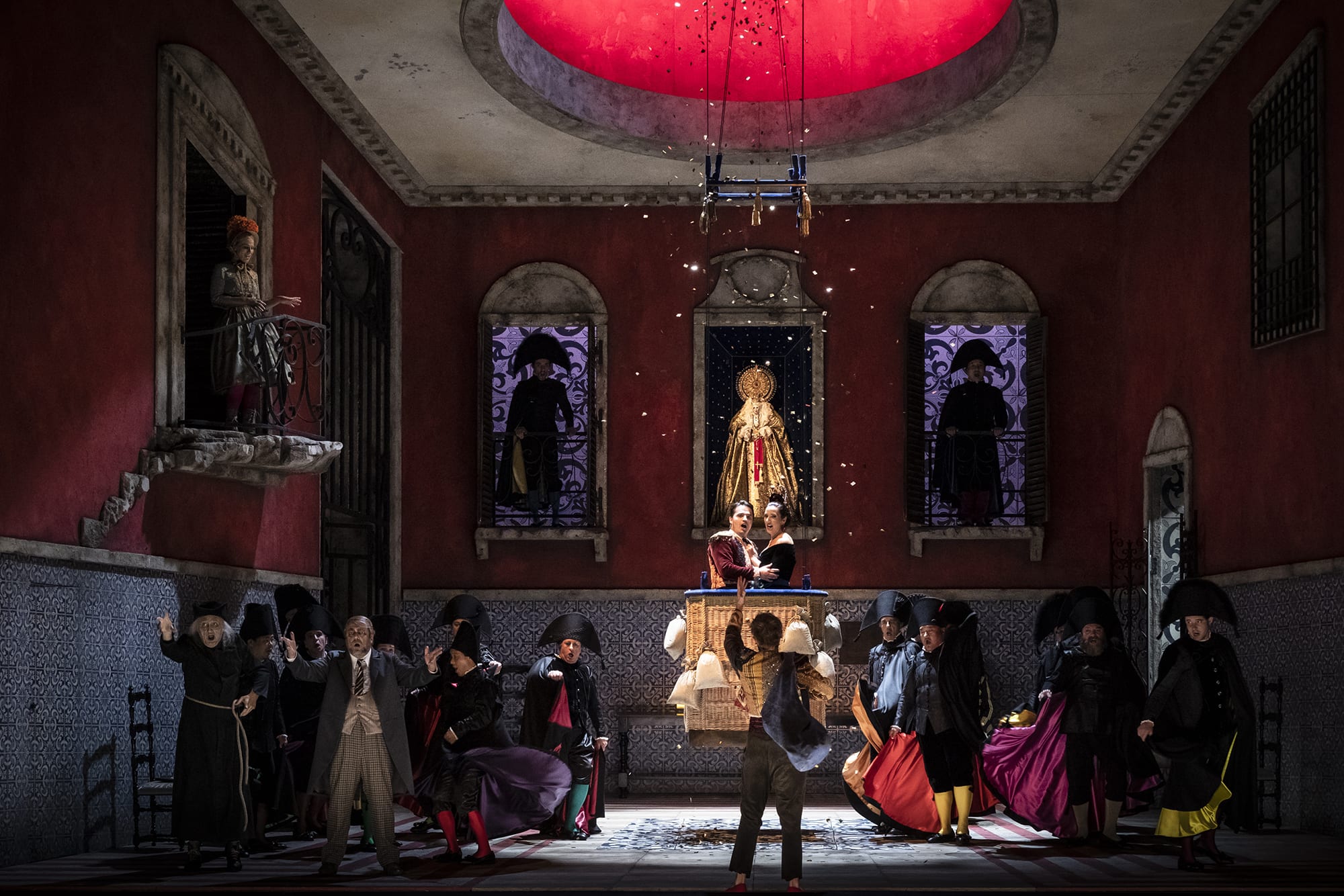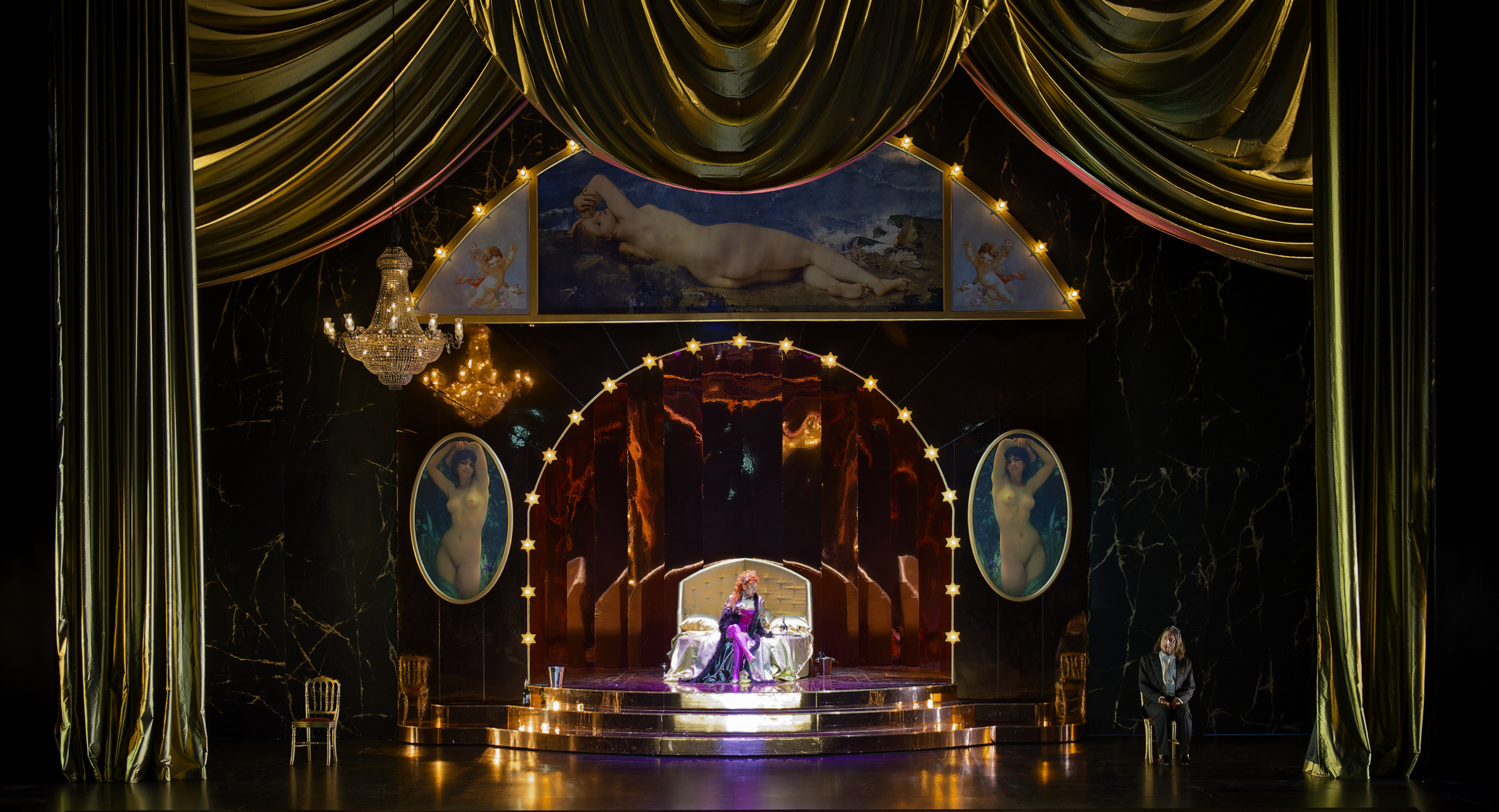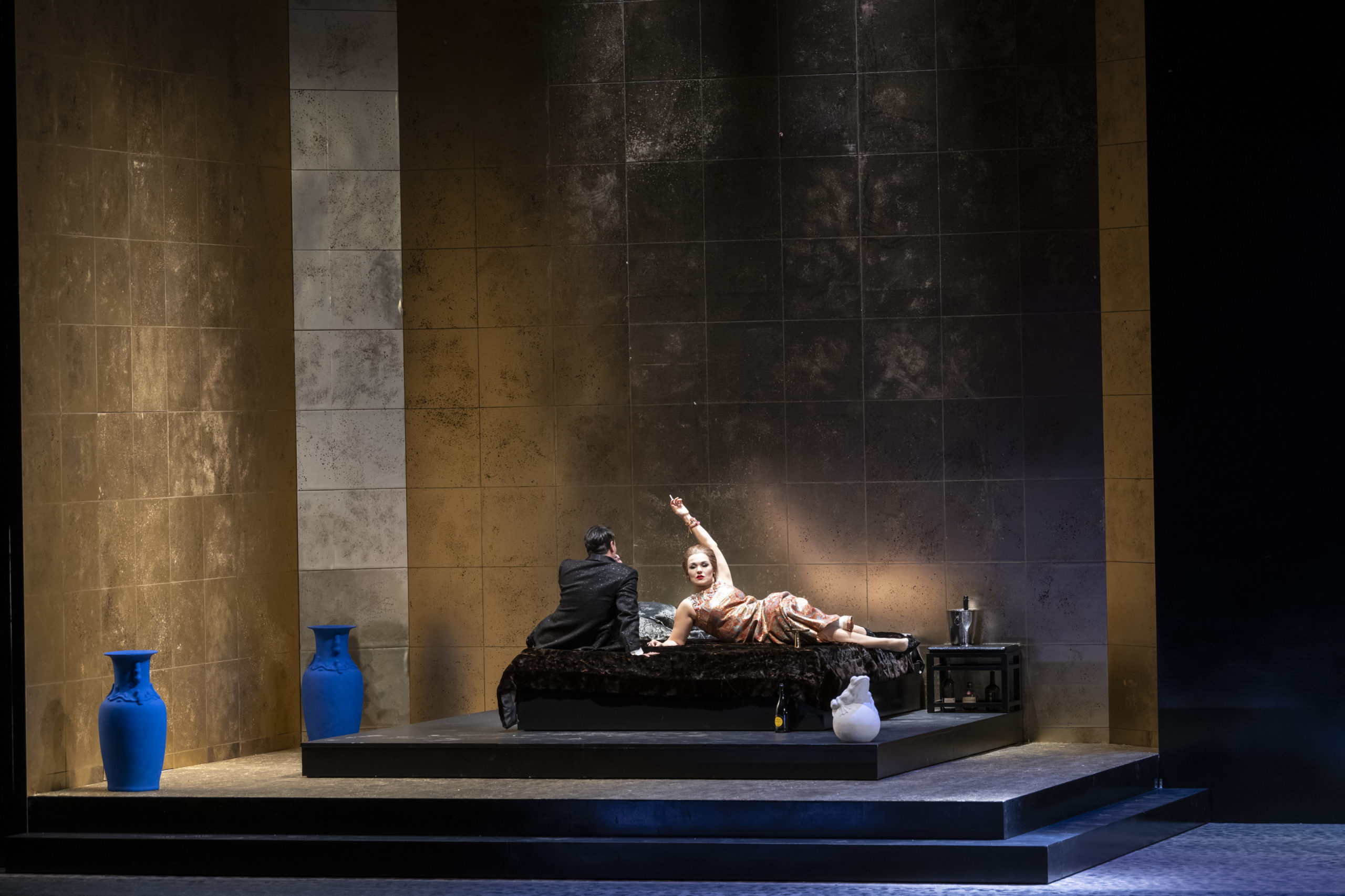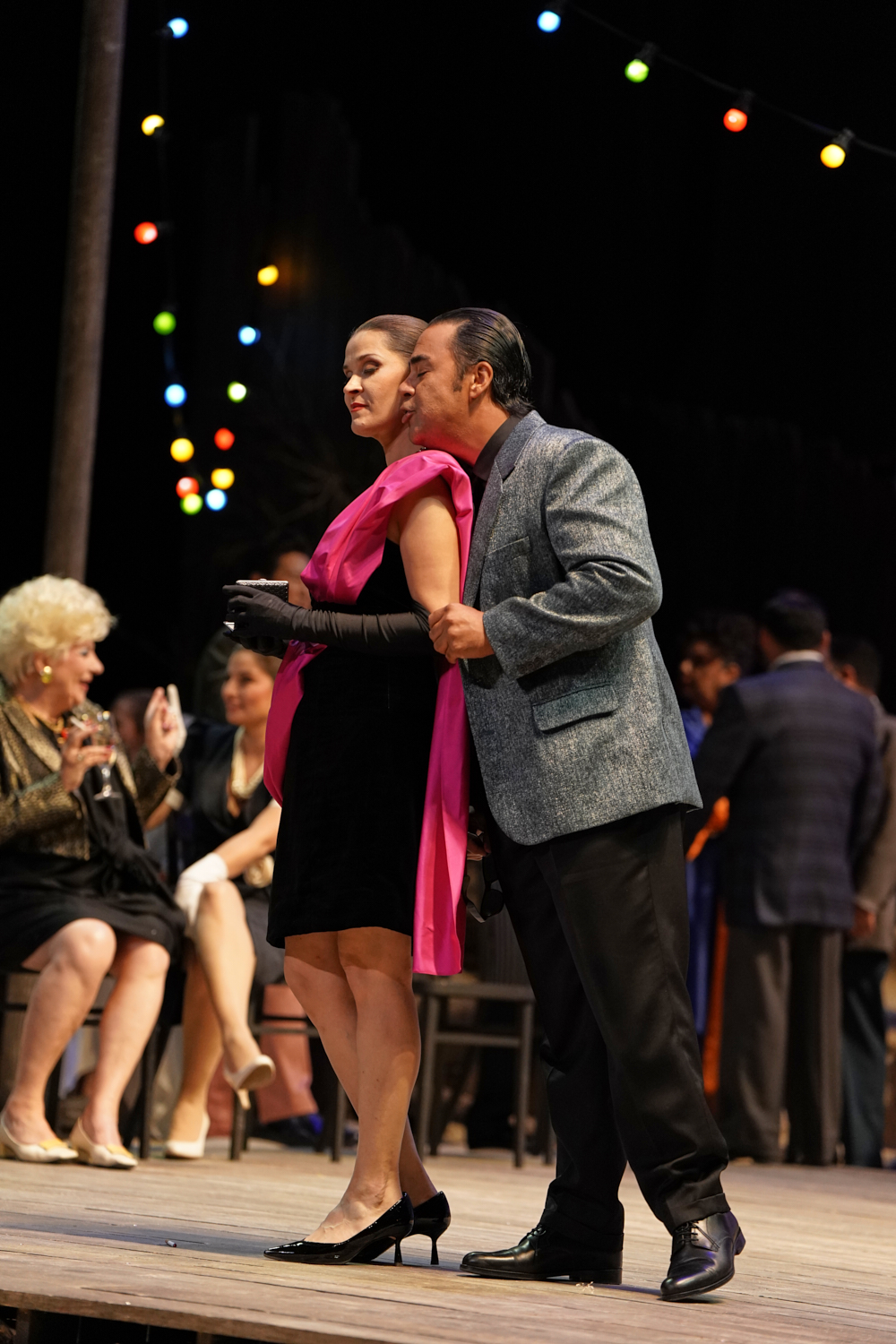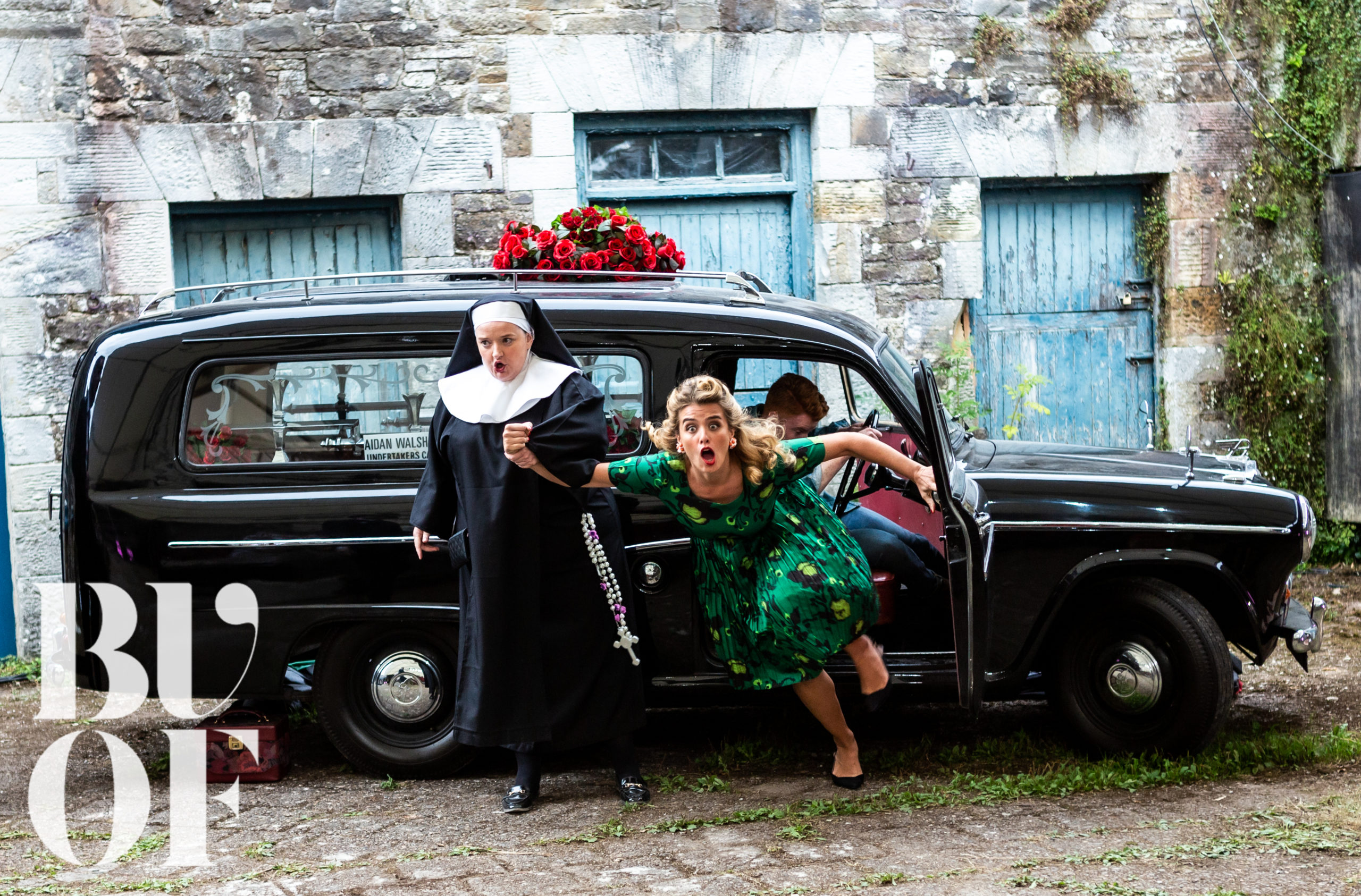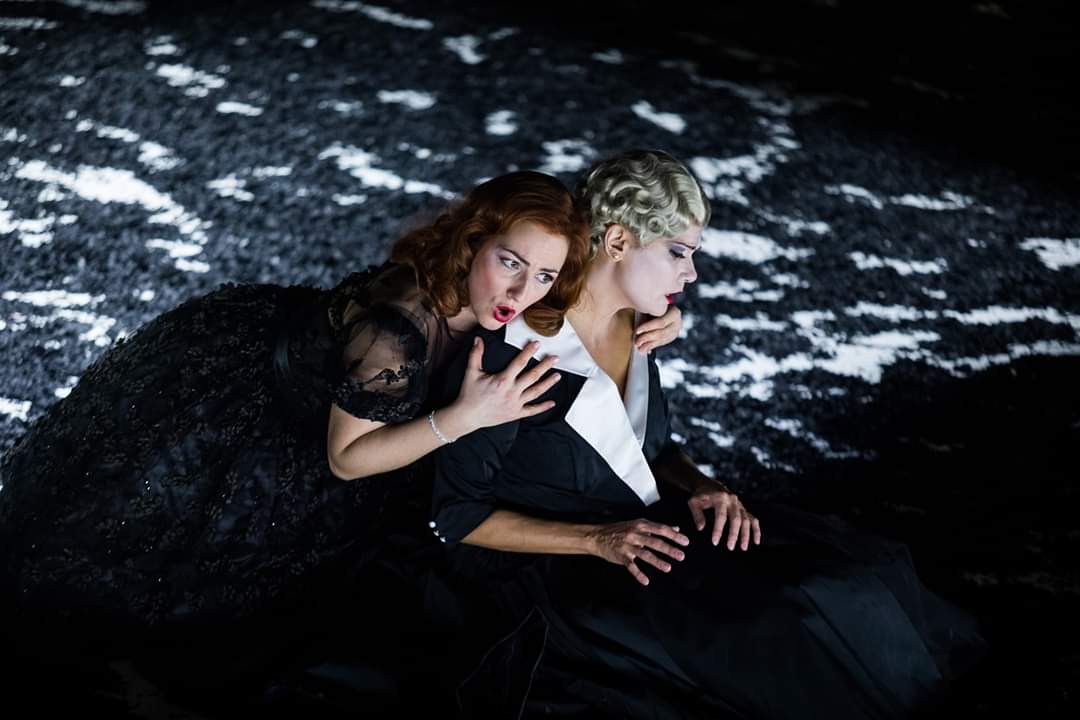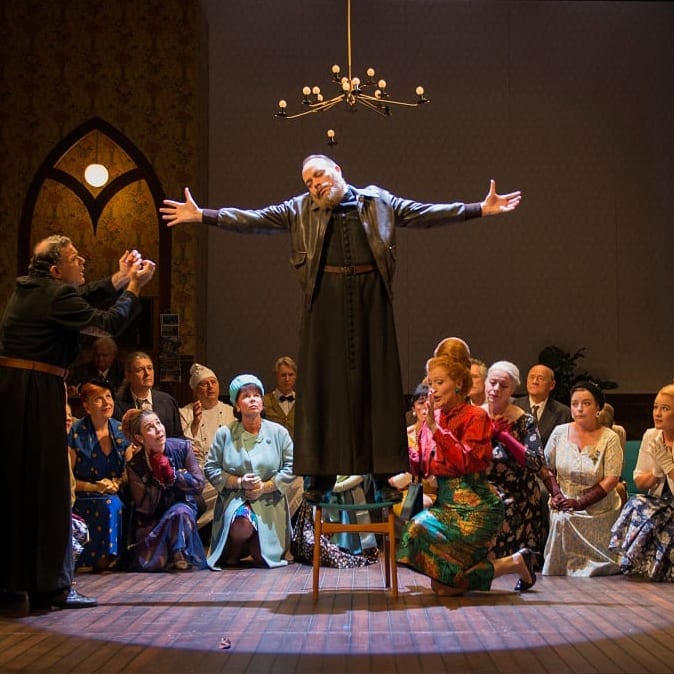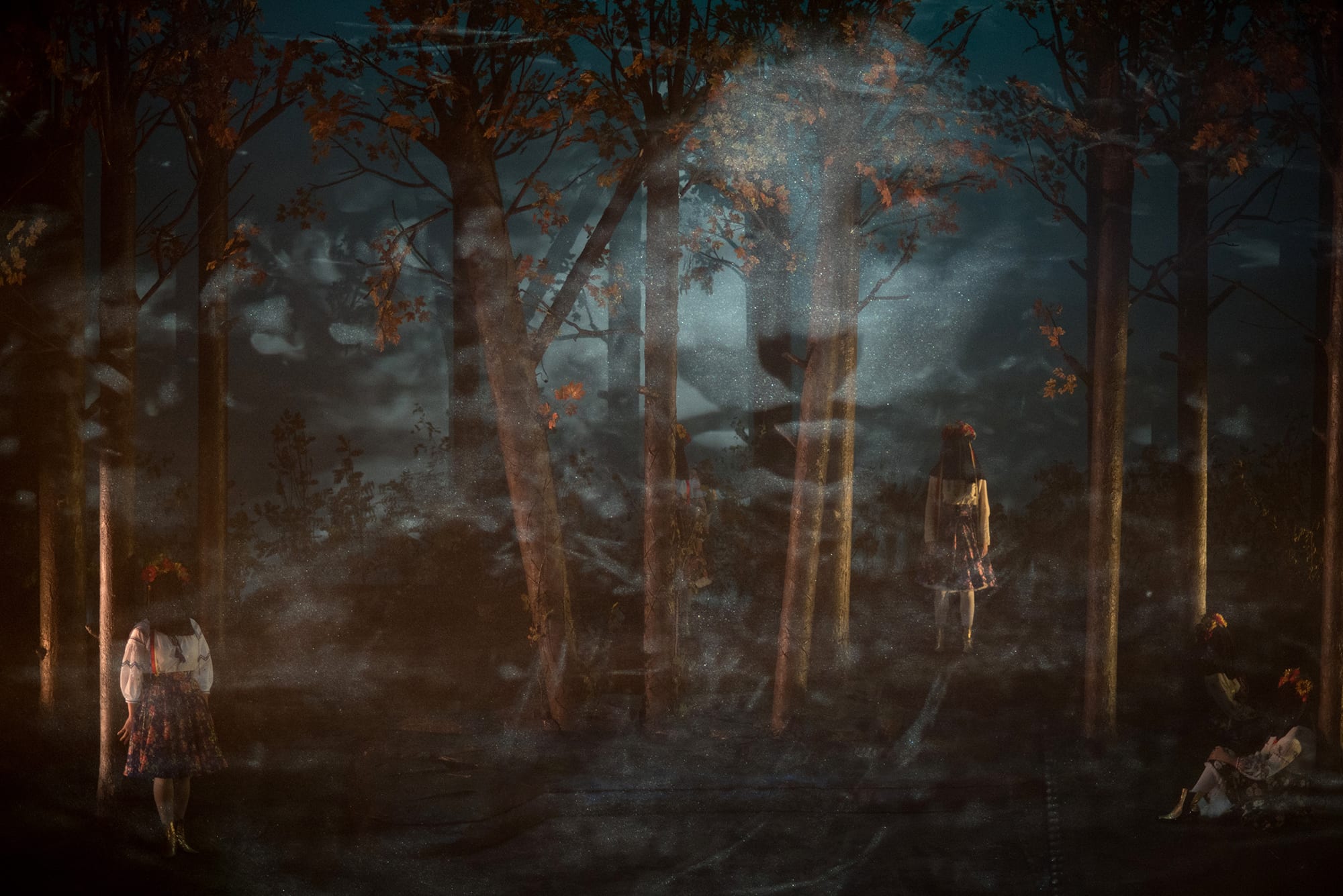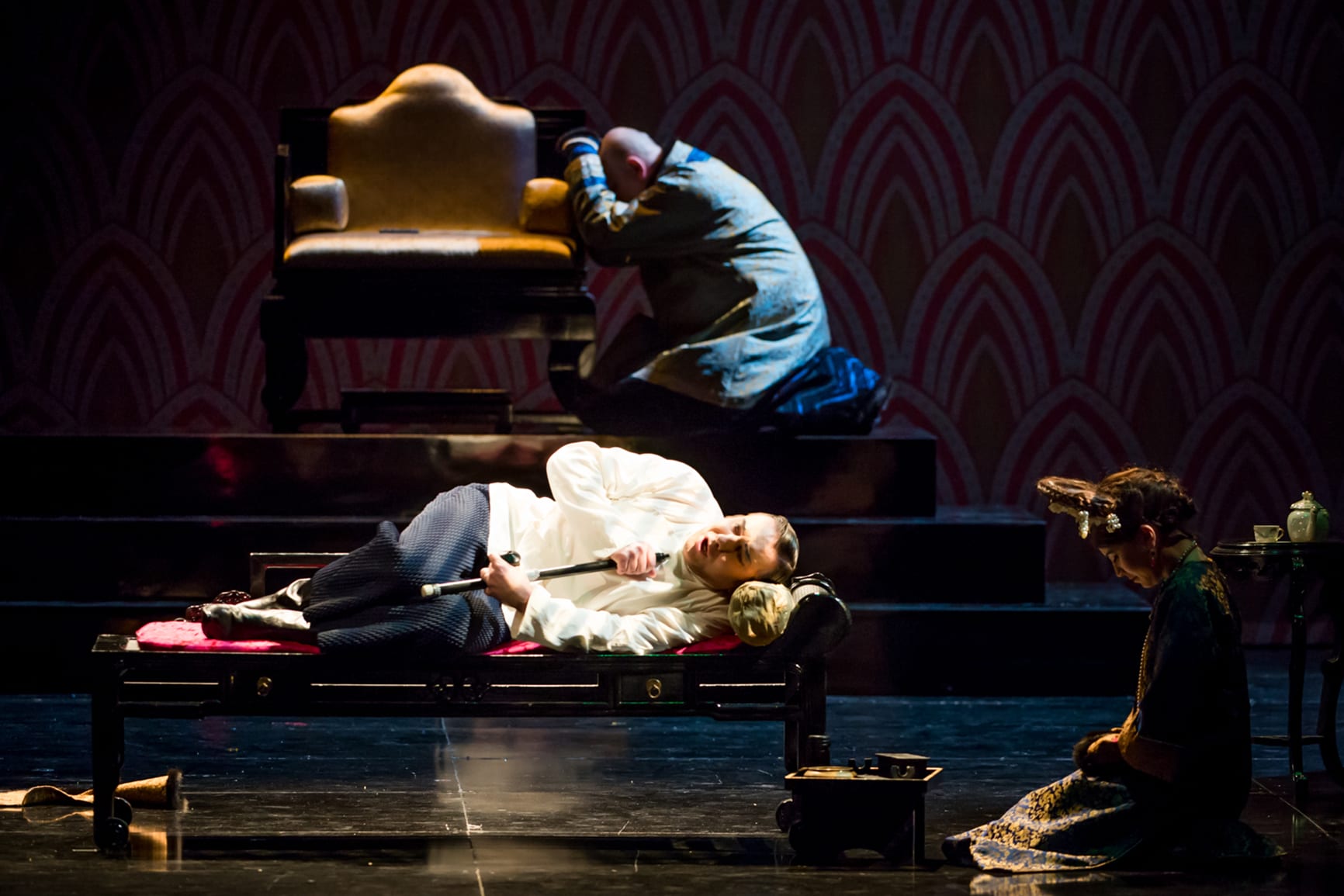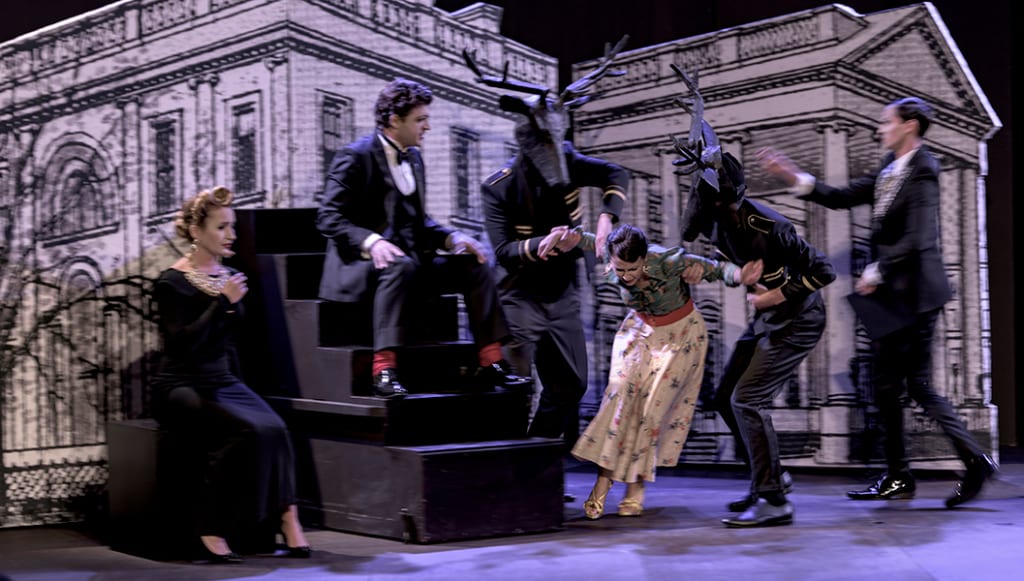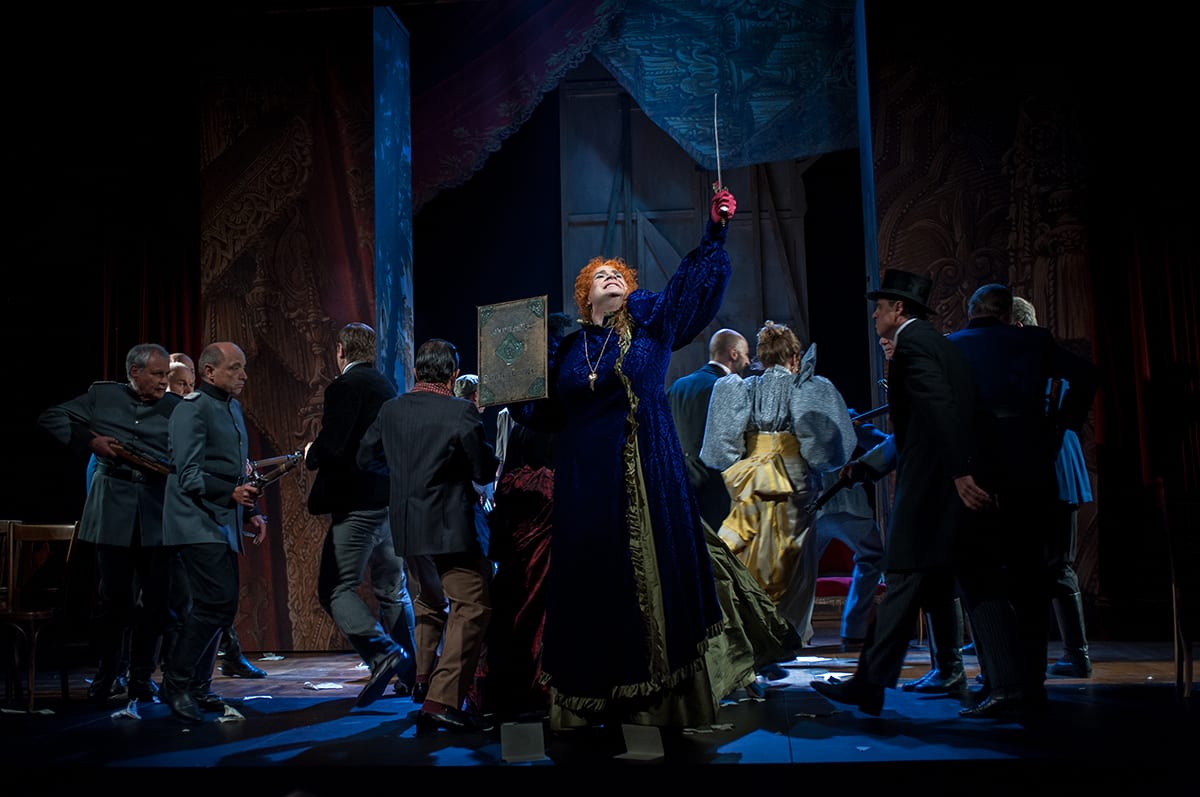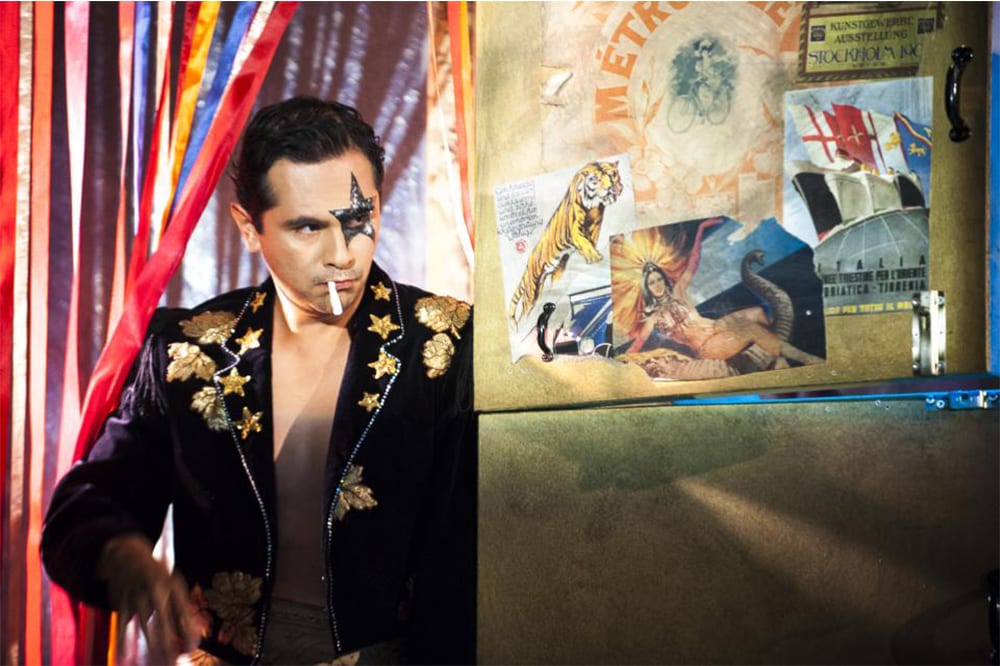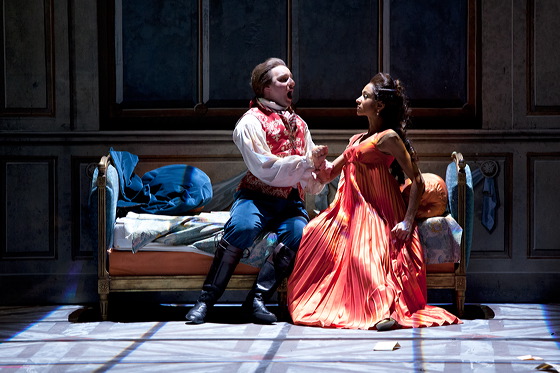générique
Direction musicale : Arvo Volmer / Henri Christopher Aavik / Kaspar Mänd
Mise en scène, décors et costumes : Pierre-Emmanuel Rousseau
Lumières : Gilles Gentner
Avec Marie Gautrot, Mario Rojas, Perrine Madoeuf, Raiko Raalik, Tamar Nugis, Priit Volmer, Janne Sevtsenko, Kadri Nirgi, Mart Madiste, Mehis Tiits …
septembe 2024 – Estonian National Opera
Production : Estonian National Opera
vidéos
1 Vidéos

1:42
Revue de presse
OPERAWIRE
However, Rousseau was able to magnify its significance in Carmen’s own mind by his treatment of her relationship with the corporal. He was not the passive, gullible sap who, consumed solely by his uncontrolled passions and unable to accept rejection, plunges a knife into her. Nor was Carmen the freedom-loving spirit that moves from one lover to the next without thought of significance or consequence. Instead, this was a relationship fashioned at a deeper level; from the very beginning, she sees in Don José the man who will kill her and in doing so fulfill both their destinies. She recognizes that he is “broken, dangerous and very unstable” and deliberately leads “him into killing her.” It is a reading not without foundation (...) Rousseau ensured that Don José’s unstable nature, with his uncontrolled emotional and violent outbursts, quickly became abundantly clear. Even in Lillas Pasta’s bar, before Carmen had turned her eye towards Escamillo, he was physically abusing her, grabbing her by the hair and shoving her around.
In Act four, however, Rousseau’s reading took a twist. When Don José confronts Carmen outside the bullring, there was a distinct shift in behavior. Yes, Don José was raging, and Carmen was taunting him, but he did not appear as if murder was on his mind; there was even a suggestion that he may walk away. Carmen had to physically press him into killing her; she was instrumental in the act. It was not the usual picture of the bold, uncompromising gypsy who preferred death over a loss of freedom; rather, it was a woman determined to meet her end at the hands of Don José. She believed it had to be; it was their destiny!
It was a presentation that added enough to spark the imagination.
However, there were aspects to admire, not least the musical quality of the orchestra under Volmer, and Rousseau’s overall conception was a strong one (...)
JANVIER 2025
Découvrez également
